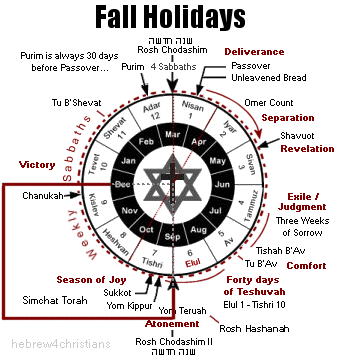|
Jewish Holiday Calendar
Note: For September 2016 site updates, please scroll past this entry....
The Jewish civil year begins in the fall, though the Biblical year begins in spring (Exod. 12:2). Preparations for the fall holidays begin with a thirty day period of teshuvah (repentance) during the (late summer) month of Elul. The following ten days begin with the Feast of Trumpets (i.e., Rosh Hashanah, on Tishri 1) and end with the Day of Atonement (i.e., Yom Kippur, on Tishri 10). These first ten days of the new year are called the "Ten Days of Awe" (i.e., aseret ye'mei teshuvah: עֲשֶׁרֶת יְמֵי תְּשׁוּבָה), or simply the Jewish "High Holidays." Just five days after the solemn time of Yom Kippur begins the joyous week-long festival of Sukkot ("Tabernacles"), which is immediately followed by the celebration of Simchat Torah. The holiday of Chanukah occurs in late fall and carries over to the winter season:
The Fall Holidays:

The fall festivals prophetically indicate the Day of the LORD, the second coming of Yeshua, the great national turning of the Jewish people, and the establishment of the reign of the Messiah upon the earth during the Millennial Kingdom in the world to come.
Note that in accordance with tradition, holiday dates begin at sundown. Moreover, some holidays may be postponed one day if they happen to fall on the weekly Sabbath:
- Month of Elul (Friday Sept. 2nd, 2016 [eve] - Sun. Oct. 2nd, 2016)
- Month of Tishri (Sun. Oct. 2nd [eve] - Tues. Nov. 1st [day])
- Month of Cheshvan (Mon. Oct. 31st [eve] - Wed. Nov. 30th [day])
- Four Sabbaths: Noach, Lekh-Lekha, Vayera, Chayei Sarah
- Yom Ha'Aliyah - A modern holiday that honors honor the contributions of olim (immigrants) to Israeli society (Cheshvan 7 - Thurs., Oct. 26)
- Sigd - 50th day after Yom Kippur; Ethiopian Jewish holiday (Tues., Nov. 29)
- Month of Kislev (Wed. Nov. 30th [eve] - Fri. Dec. 29th [day])
- Four Sabbaths: Toldot, Vayetzei, Vayishlach, Vayeshev
- Winter Solstice: Wed. Dec. 20th (Kislev 20)
- Dates for Chanukah 2016 (5777):
- 1st Chanukah candle - Sat. Dec. 24th [i.e., Kislev 25]
- 2nd Chanukah candle - Sun. Dec. 25th
- Christmas: Sun. Dec. 25th
- 3rd Chanukah candle: Mon. Dec. 26th
- 4th Chanukah candle: Tues. Dec. 27th
- 5th Chanukah candle: Wed. Dec. 28th
- Month of Tevet (Thurs., Dec. 29th [eve] - Fri. Jan. 27th [day])
- Four Sabbaths: Miketz, Vayigash, Vayechi, Shemot
- Dates for Chanukah (continued):
- 6th Chanukah candle: Thur. Dec. 29th (Rosh Chodesh Chanukah)
- 7th Chanukah candle: Fri. Dec. 30th
- 8th Chanukah candle: Sat. Dec. 31st [Zot Chanukah]
- Secular New Year: Sun. Jan. 1st, 2017 (Tevet 3)
- Tenth of Tevet - Sun. Jan. 8th, 2017; fast over the seige of Jerusalem
 |
Note: Some calendars will list the first day of a holiday without indicating that the holiday actually begins sundown the night before... So, for example, while Chanukah begins Saturday, Dec. 24th at sundown, many calendars may indicate that it occurs on Sunday, December 25th.
September 2016 Updates
Note: If any page content appears to be missing, please refresh the page...
Shanah Tovah, friends!
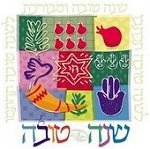
[ The holiday of Rosh Hashanah begins Sunday October 2nd at sundown... ]
09.30.16 (Elul 27, 5776) God is both infinitely loving and infinitely just, and both of these "attributes" are inseparably a part of who he is. God is One. Nonetheless, the cross of Yeshua proves that "love is stronger than death, passion fiercer than the grave; its flashes are flashes of fire, a raging flame, the very flame of the Lord" (Song. 8:6). It is at the cross that "love and truth have met, righteousness and peace have kissed" (Psalm 85:10). This implies that we must drop our defenses – even those supposed objections and pretenses voiced by our shame – and "accept that we are accepted." It is God's great love for you that leads you to turn to him. Allow yourself to be embraced by his "everlasting arms."
מֵרָחוֹק יְהוָה נִרְאָה לִי
וְאַהֲבַת עוֹלָם אֲהַבְתִּיךְ
עַל־כֵּן מְשַׁכְתִּיךְ חָסֶד
me·ra·chok Adonai nir·ah li
ve·a·ha·vat o·lam a·hav·tikh
al ken me·shakh·tikh cha·sed

"The LORD appeared to me from far away.
I have loved you with an everlasting love;
therefore with lovingkindness have I drawn you."
(Jer. 31:3)

Hebrew Study Card
Genuine repentance will entirely change you. It is an act of profound respect over what God has done on your behalf. You say, but I am a miserable wretch! Indeed that is so, but the consciousness of your wretched state is the heart's cry for love... God goes "outside the camp" to meet with you. He enters the leper colony to join you there, in your wretchedness, and even takes upon your fatal disease. He sees you in your desperate estate and joins you there. God enters into the dust of your death and says, "Live!"
Repentance means changing your thinking, turning around to face the truth, and returning to embrace God's love. It does not identify the whole person with sin, but rather regards all people as redeemable, worthy, and valuable to God. Conviction of sin is not the end, but rather the means to newness of life. God saved us so that we could be in a love relationship with Him. We must "choose life," and that means choosing to welcome God's love into your heart. The only sin that can keep you from God's everlasting love is the denial that his love is personally for you. You must forsake seeing yourself "in the flesh" and take hold of God's spirit, his passion, and his grace for your soul. You are worthy to be loved because God is worthy to make you so. Therefore as our wonderful Savior appealed, "Repent and believe the good news" (Mark 1:5). God is love, and that love is for you.
We sincerely wish you "shanah tovah u'metukah ba'Adoneinu Yeshua ha-Mashiach" - a good and sweet year in our Lord Jesus the Messiah! May the LORD God heal you, body and soul; may He ease your pain, increase your strength, and release you from all your fears... May blessing, love, joy, and true shalom surround you and fill you with ongoing wonder and thanks. In the Name above all Names we pray: Amen.
Close as your Breath...
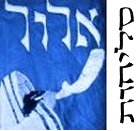
[ The following is related to the month of Elul and the "Season of Repentance"... ]
09.30.16 (Elul 27, 5776) Teshuvah is our answer to God's invitation to be his beloved people... Were it not for this great gift, no one could ever withstand the force of the divine attribute of Justice. Our Torah portion for this week (i.e., Nitzvavim) describes the process of turning: "This commandment (i.e., of turning to the LORD) is not too hard for you, neither is it far off." Indeed, it is not a matter of striving to ascend to heaven, nor of fathoming the depths of the sea. No, "the word is very near to you" (כִּי־קָרוֹב אֵלֶיךָ הַדָּבָר מְאד) - as close as your mouth and heart so that you can do it. If we confess the truth with our mouth and turn to God with all our heart, we find blessing and life:
כִּי הַמִּצְוָה הַזּאת אֲשֶׁר אָנכִי מְצַוְּךָ הַיּוֹם
לא־נִפְלֵאת הִוא מִמְּךָ וְלא רְחקָה הִוא
כִּי־קָרוֹב אֵלֶיךָ הַדָּבָר מְאד
בְּפִיךָ וּבִלְבָבְךָ לַעֲשׂתוֹ
ki · ha·mitz·vah · haz·zot · a·sher · a·no·khi · me·tza·ve·kha · ha·yom
lo · nif·let · hi · mi·me·kha · ve·lo · re·cho·kah · hi
ki · ka·rov · e·le·kha · ha·da·var · me·od
be·fi·kha · u·vil·vav·kha · la·a·so·to

"For this commandment that I command you today
is not too hard for you, neither is it far off...
For the word is very near you -
it is in your mouth and in your heart, so that you can do it"
(Deut. 30:11,14)

It is interesting to consider how the Apostle Paul interprets Deut. 30:11-14 in Romans 10:5-8 and uses it to contrast the "righteousness which is from the law" with the "righteousness which is of faith." Paul first quotes Lev. 18:5 as a summary of the meaning of the law (you must keep the commandments in order "to live by them," i.e., you must entirely obey them to find life). He then contrasts the "righteousness which is from the law" with the "righteousness which is of faith." Only God can bridge the gap between heaven and earth. When Paul quotes Deut. 30:14, i.e., "But the word is very near you. It is in your mouth and in your heart," he deliberately omits the last clause (i.e., "so that you can do it") precisely because we cannot "do it," i.e., keep the commandments. The "word of faith" is the message that God's righteousness now comes through Messiah's work for us, and the confession of faith ascribes salvation to be "of the LORD," not based on our own works of righteousness. "The word is near you, in your mouth and in your heart" (that is, the word of faith that we proclaim) because, if you confess with your mouth that Yeshua is LORD and believe in your heart that God raised him from the dead, you will be saved. For with the heart one believes and is justified, and with the mouth one confesses and is saved" (Rom. 10:8-10).
Love's Confession...

[ The following entry is related to our Torah portion this week, parashat Nitzavim... ]
09.30.16 (Elul 27, 5776) From our Torah portion this week we read: "The word is very near you; it is in your mouth and in your heart, so that you can do it" (Deut. 30: 14). What "word" is this other than the confession of faith in the LORD? Faith is the key, since it responds to God's voice and receives the message of hope within the heart... Faith is a matter of the will: of choosing to receive the blessing, accepting that you are accepted, and trusting God's passion for your life. "Consider Abraham; he believed God and it was credited to him as righteousness" (Gal. 3:6). Faith itself is the obedience of Torah, the necessary precondition for all that follows. "I am the LORD your God" (אָנכִי יְהוָה אֱלהֶיךָ) is the very First Commandment. When we turn to the LORD, we esteem him as truthful, just, wise, compassionate, and worthy of our trust. "Faith makes God real to us and real in us; when we honor God, we give everything that a believing heart can give Him" (Luther).
The students of the maggid of Zlotchov once asked him, "In the Torah we read that our father Abraham kept all the laws (Gen. 26:5), but how could this be, since they had not yet been given to him?" The maggid replied, "All that is needed is to love God. If you are about to do something and you think it might lessen your love, then you know it's a sin; but if you think it will increase your love, then you know it's in keeping with God's will. That's what Abraham did." Amen. Faith is the confession of God's love. Abraham was justified by faith because he trusted in God's love more than anything else, and that is the essence of Torah. "Now abide faith, hope, love, these three, but the greatest of these is love" (1 Cor. 13:13).
The Narrow Door...

09.30.16 (Elul 27, 5776) "Strive to enter through the narrow door. For many, I tell you, will seek to enter and will not be able" (Luke 13:24). The narrow door is the way of humility, assuming a low position, crawling, if you will, and making yourself small... It is the way of the cross of Messiah, confessing the truth of our condition and trusting in God alone for deliverance.. The narrow door is the way of faith - trusting God's compassion and righteousness given on your behalf. The large, wide-open door is designed for the crowd and its various idols. Beware of the world that seeks to assimilate the soul: beware of becoming part of the crowd! The individual is lost and overwhelmed in the midst of the crowd and its momentum. The crowd assimilates the soul, laughs at the notion of individual responsibility, and abandons itself to the gravity of purely natural forces... The life of faith, on the other hand, refuses to regard the individual human heart as a triviality. Faith is an individual struggle, a walk into unknowing; it is the way of the sojourner who feels uneasy in this world of shadows... God is always with us and helps us stay strong and resolute, even as we struggle through the darkness of this age. Press on, chaverim! Do not lose sight of your high calling in Yeshua. The day and the hour draw near!
Circumcision of Heart....

[ The following entry is related to our Torah portion this week, parashat Nitzavim... ]
09.29.16 (Elul 26, 5776) Our Torah portion this week (Nitzavim) says "the LORD your God will circumcise your heart (וּמָל יְהוָה אֱלהֶיךָ אֶת־לְבָבְךָ) and the heart of your offspring" (Deut. 30:6), and yet earlier Moses had admonished, "you shall circumcise the block of your heart" (Deut. 10:6). So which is it? Does God circumcise the heart or do we? The answer is of course both: you must make a beginning by opening your heart to God's word, though only God has the power to enable you to "love the LORD your God with all your heart and with all your soul, that you may live." When you turn to God and open your heart to Him, God will remove the blockage of your heart so that your other relationships might be healed as well. Therefore "work out your own salvation with fear and trembling, for it is God who works in you, both to will and to work for his good pleasure" (Phil. 2:12-13).
"It is enough to open your heart the smallest amount - even the width of a pin head - to repent, so that you feel a prick within your heart, like a piercing sting in living tissue, not like a needle thrust into dead flesh" (Menachem Mendel of Kotzk).
Root of Bitterness...

09.29.16 (Elul 26, 5776) From our Torah this week (Nitzavim) we read, "perhaps there is among you a root that bears poison and bitterness" (Deut. 29:18). The Kotzker rebbe commented here that much bitterness comes precisely from this "perhaps" (פֶּן־יֵשׁ). When you stand back from the word of Torah and question whether it is something you should heed, you are halfhearted and ambivalent, and this may lead to bitterness regarding serving God. On the other hand, when Israel was asked whether they would accept the Torah, they replied "na'aseh v'nishmah," we will do and (then) we will understand, recognizing that the act of will is central for understanding (Exod. 24:7). Carnal human nature wants to know the reason for obedience - the pragmatic payoff, if you will - but that is not the way of faith. It is written: הַנִּסְתָּרת לַיהוָה אֱלהֵינוּ - "the hidden things are for the LORD our God" (Deut. 29:29), meaning such are not disclosed by reasoning but are revealed to the heart. God sees in secret and knows the inner workings of our affections (Prov. 17:3; Psalm 66:10, etc.).
אֲנִי יְהוָה חקֵר לֵב בּחֵן כְּלָיוֹת
וְלָתֵת לְאִישׁ כִּדְרָכָיו כִּפְרִי מַעֲלָלָיו
a·ni · Adonai · cho·ker · lev · bo·chen · ke·la·yot
ve·la·tet · le·ish · kid·ra·khav · kif·ri · ma·a·la·lav

"I the LORD search the heart and test the mind,
to give every man as to his ways, as to the fruit of his deeds."
(Jer. 17:10)

The Overmastering Light...
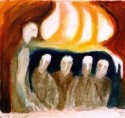
09.29.16 (Elul 26, 5776) There is a lot of cunningly engineered fear (and outrage) "in the air," and the enemy of our souls seeks first of all to lead us into a place of exile, worry, and pain. We are able to resist him by submitting to the truth about reality (James 4:7). God's Name YHVH (יהוה) means "Presence" and "Love," and there is no power in heaven or earth that can overrule His hand. Therefore even if the prophesied "End of Days" were to begin this very hour, our responsibility is to focus on the Divine Presence and to walk in His truth and love. As King David said, "I have set the LORD always before me; because He is at my right hand, I shall not be shaken" (Psalm 16:8).
שִׁוִּיתִי יְהוָה לְנֶגְדִּי תָמִיד
כִּי מִימִינִי בַּל־אֶמּוֹט
shiv·vi·ti · Adonai · le·neg·di · ta·mid
ki · mi·mi·ni · bal · e·mot

"I have set the LORD always before me;
because he is at my right hand, I shall not be shaken"
(Psalm 16:8)

Hebrew Study Card
Encourage yourself by remembering that there is a future of healing and deliverance coming to us, though we must abide in the shadow of its substance for a bit longer: "For behold, the Day is coming (הַיּוֹם בָּא), burning like an oven, when all the arrogant and all evildoers will be stubble. The Day that is coming shall set them ablaze, says the LORD of hosts, so that it will leave them neither root nor branch. But for you who fear my Name, the Sun of Righteousness (שֶׁמֶשׁ צְדָקָה) shall rise with healing in its wings. You shall go out skipping like calves released from the stall. And you shall tread down the wicked, for they will be ashes under the soles of your feet, on the day when I act, says the LORD of hosts" (Mal. 4:1-3).
This awesome passage from the Book of Malachi primarily applies to the Second Coming of Yeshua and the great "Day of the LORD" (יוֹם יהוה). The "Sun of Righteousness," shemesh tzaddik (שֶׁמֶשׁ צְדָקָה), refers to Messiah son of David, the risen life-giving Healer of God. Of Him it is said, "The LORD God is a sun and a shield" (Psalm 84:11) and "the LORD shall be to thee an everlasting Light (אוֹר עוֹלָם), and thy God thy glory; thy sun shall no more go down, for the Lord shall be thine everlasting light" (Isa. 60:19-20). The Divine Light will shine on those who receive God's righteousness, that is, on those who put their trust in the One who said, 'I am the Light of the world' (John 8:12). Shine Your Light upon us, O LORD!
The Wisdom of Teshuvah...
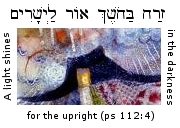
[ Our Torah portion this week, parashat Nitzavim, is always read on the last Shabbat of the year, since it describes the process of repentance (i.e., teshuvah)... ]
09.29.16 (Elul 26, 5776) It is written in Kohelet: הֶחָכָם עֵינָיו בְּראשׁוֹ - "the wise person's eyes are in his head," וְהַכְּסִיל בַּחשֶׁךְ הוֹלֵךְ- "but the arrogant person walks in darkness" (Eccl. 2:14). The sages here comment that the wise one always looks to the Divine Presence, taking heed to "know what is above: a seeing eye, a listening ear, and all your deeds being inscribed in a book" (Avot 2:1). The wise person keeps God in his thoughts and the light of Truth illuminates his understanding. This is the way of teshuvah – turning our affections and thoughts heavenward at all times. Our Torah portion this week (Nitzavim) says, "You are standing this day before the Lord your God" (Deut. 29:10), and therefore may we know before Whom we stand and may we be filled with the light of divine truth. Amen.
זָרַח בַּחשֶׁךְ אוֹר לַיְשָׁרִים
חַנּוּן וְרַחוּם וְצַדִּיק
za·rach · ba·cho·shekh · ohr · lai·sha·rim
chan·nun · ve·ra·chum · ve·tzad·dik

"Light dawns in the darkness for the upright;
He is gracious, merciful, and righteous."
(Psalm 112:4)

Hebrew Study Card
Teshuvah and Creation...
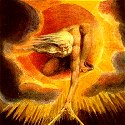
[ Today marks Elul 25, the "date of creation..." ]
09.28.16 (Elul 25, 5776) After the LORD judged Adam and Eve, He compassionately gave them the skin of a sacrificial lamb as their covering (Gen. 3:21). This First Sacrifice, offered by the Hand of God Himself, foreshadowed the coming Sacrifice of the Lamb of God who was slain "from the foundation of the world" (1 Pet. 1:20). At the very beginning of mankind's creation, then, the LORD initiated His plan of redemption and salvation through Yeshua (Jesus) as the Divine Light of the world (אוֹר הָעוֹלָם).
The Akedat Yitzchak ("Binding of Isaac") is a major theme on Rosh Hashanah. According to Jewish tradition, God told Abraham that the ram's horn (shofar) should be blown on Rosh Hashanah to remind the people of the substitutionary sacrifice provided by the LORD Himself -- an echo of that First Sacrifice offered in Eden. How much more should we as believers in the greater sacrifice of Yeshua as our Lamb of God celebrate this day?
For more on this, see "Teshuvah and Creation: Elul 25 on the Jewish Calendar."
Teshuvah's Lament...

[ The following is related to the month of Elul and the theme of teshuvah (repentance)... ]
09.28.16 (Elul 25, 5776) While it's true that we express sorrow and regret for our sins - we mourn over our lives - this is part of the healing process, with the end result of obtaining comfort from God (Matt. 5:4). Mere regret over sin is not enough, however, since the motive may be from shame (pride) or disappointment over some selfish loss. Esau repented with tears, but his wasn't true repentance since he didn't lament the loss of his heart to God's love... True repentance leads to healing and life. When the woman from Magdala wept and washed Jesus' feet with her tears, he said to those present, "I tell you, her sins, which are many, are forgiven -- for she loved much" (Luke 7:44-48). In other words, she was lavish in her love because she deeply regretted that she had missed what was most important, what she desperately needed all along... She saw her sin as blindness to God's love... After all, why would she weep over her sins unless she loved him? And how could she love him unless he first revealed his love to her? (1 John 4:19)
"For grief (λύπη) as intended by God produces a repentance (תְּשׁוּעָה) that leads to salvation, leaving no regret, but worldly grief produces death" (2 Cor. 7:10). Ultimately, however, there is great consolation to the sinner who turns to God in the truth: "A person reposes in the forgiveness of sins when the thought of God no longer reminds him of the sin, but of the fact that it is forgiven, so that what is past is not a recollection of how much he offended, but of how much he has been forgiven.... Eternal justice can and will forget in only one way - through forgiveness in Christ - but then, of course, the believer must not forget and must steadfastly recollect that it is forgiven him." (Kierkegaard, Journals)
Is Rosh Hashanah Biblical?
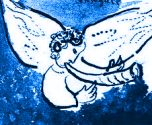
[ The holiday of Rosh Hashanah begins Sunday October 2nd at sundown... ]
09.28.16 (Elul 25, 5776) Though the term "Rosh Hashanah" does not occur in the Torah, the start of the 7th month (i.e., Tishri 1) is clearly to be set apart by special shofar blowing (see Lev. 23:24-25, Num. 29:1-2). Furthermore, the Torah calls the end of the harvest year (in the fall) the "end of the year" (see Exod. 23:6), which indicates the symmetry of the calendar: the fall festivals "mirror" the spring festivals and correspond to one another. Just as there is a "new year" in the spring, on the new moon of Nisan, so there is in the fall, on the new moon of Tishri, the seventh month... That is why we make a "teruah" shout of thanks to God in anticipation of the fulfillment of God's redemptive purposes during the End of Days.
But what about the idea of focusing on repentance (i.e., teshuvah) during this time of year? Well, undergoing self-examination and teshuvah are clearly commanded by God throughout the Scriptures, including the New Testament writings (see Lam. 3:40; Haggai 1:5; Psalm 119:59; Matt. 7:3-5, Gal. 6:3-4, 1 Cor. 11:28, 2 Cor. 13:5, James 5:16, 1 John 1:8-9, etc.). Setting aside 40 days each year to call us to turn to God is a healing custom, especially if it's done in light of truth of the gospel message. After all, Christians will stand before the Throne of Judgment (kisei ha-din) to give account for their lives to God (see 2 Cor. 5:10). As it is written: "Every man's work shall be made manifest: for the day shall declare it, because it shall be revealed by fire; and the fire shall try every man's work of what sort it is" (1 Cor. 3:13). The foundation of every true work of God comes from trusting in the finished work of Yeshua the Messiah, and the work of our faith will be tested and judged.
For more on this subject, see Is Rosh Hashanah Biblical?
Rosh Hashanah Home Celebration...

09.28.16 (Elul 25, 5776) To prepare for a Rosh Hashanah home evening celebration, you will need a few basic things. Minimally you will need a couple holiday candles, a kiddush cup, some grape juice, challah (holiday bread), a few apples and honey, and a pomegranate... You will also need a shofar to sound at the end of the meal. For best results you should plan your meal, arrange your table, and decide which order things should go.... Here is a very general overview of the steps for our Rosh Hashanah Seder:
- Recite the blessing over the candles (usually 18 mins before sundown)
- Do kiddush over the wine/grape juice
- Recite the Shehecheyanu blessing
- Recite the Mo'edim blessing
- Recite the Hamotzi blessing over the (round) challah
- Recite the Shema (together, under a tallit)
- Recite Birkat Kohanim (blessing the children)
- Wish one another L'shanah tovah! Sing some holiday songs
- Sit at the table for the holiday meal
- Follow the simamin service (blessings over selected foods)
- Serve and eat the holiday meal together
- Recite (an abbreviated) Birkat Hamazon - giving thanks to God for the meal
- Recite blessings for the new year; taste apples and honey; pomegranate
- Recite the Shofar blessing and hear the shofar (at least 100 blasts for the evening)
- Tekiah [1 blast]
- Shevarim [3 wailing blasts]
- Teruah [at least 9 staccato blasts]
- Tekiah Gedolah [1 very long blast]
 Listen to the Shofar Listen to the Shofar
We usually serve matzah ball soup or tzimmes, fresh salad, and a main course such as pomegranate chicken over rice with some green beans. During the holiday meal we also eat some "ceremonial foods" (i.e., simanim) and recite Hebrew blessings over these "first tastes" of the new year... For example we will eat a few almonds, some beets, a bite of fish, a nosh of star fruit, and of course apple and honey (tapu'ach udvash) for dessert. Please understand that you don't "have" to do any of this (though it is a blessing if it's done in the right spirit). If you are new to all this or feeling anxious, my heartfelt advice is to follow the path of peace - our Lord doesn't lay heavy burdens on us but lightness and grace... Shalom.
For more information, see the Hebrew for Christians Rosh Hashanah Seder Guide.
Returning Home...

09.28.16 (Elul 25, 5776) "If we confess our sins..." (1 John 1:9). The question is raised, if a man sins purposely, how can he know whether his intentional repentance can overcome his intentional sin? We must press on, and maintain our teshuvah. Even if we sin 70 x 7 times (Matt. 18:21-22), we are forbidden to regard ourselves as beyond the reach of God's healing love. The Spirit cries out: "Return to Me, and I will return to you" (Mal. 3:7).
A king's son was at a far distance from his father. Said his friends to him, "Return to your father." He said, "I can't: the way is too far. His father sent to him and said, "Go as far as you are able, and I will come the rest of the way to you. Thus says the Holy One, blessed be He: "Return to me, and I will return to you, says the LORD of hosts" (Mal. 3:7).
שׁוּבוּ אֵלַי וְאָשׁוּבָה אֲלֵיכֶם
אָמַר יְהוָה צְבָאוֹת
shu·vu · e·lai · ve·a·shuv·ah · a·lei·khem
a·mar · Adonai · tze·va·ot

"Return to me, and I will return to you,
says the LORD of hosts" (Mal. 3:7)

It is never too late to turn to God... there is always hope. The prophet Jeremiah spoke in the Name of the LORD: "Return, faithless Israel, declares the LORD. I will not look on you in anger, for I am kind (כִּי־חָסִיד אֲנִי), declares the LORD. Only acknowledge your iniquity, that you have transgressed against the LORD thy God..." (Jer. 3:12-13)." When the people drew back in shame, however, God encouraged them by saying "My children, if you return, will you not be returning to your Father? Return, O faithless sons; I will heal your faithlessness. "Behold, we come to you, for you are the LORD our God" (Jer. 3:22).
Teshuvah and Sin...

09.28.16 (Elul 25, 5776) Many people minimize the idea of sin because they fail to recognize it as life-threatening, lethal, and spiritually disastrous. Sin (and its justification in our lives) cuts us off from God, however, and that invariably leads to a sense of existential dread (Isa. 59:2; Ezek. 18:4). "The wages of sin is death" (Rom. 6:23), and that means those who practice sin are considered "dead" even while alive (Berachot 18a-b). Tragically, sin can lead to the dreadful punishment of karet (כָּרֵת), being "cut off" from any awareness of the Truth. Regarding this the sages note that the Hebrew word for sin, chet (חַטְא), is written with a silent Aleph (א) because when we sin, the Master and LORD (אַלּוּף) is present, because without his power no one could lift his hand to do anything great or small. Here we note the terrible reality that our sin is witnessed by God himself, a pain that pierces his very heart.
נַחְפְּשָׂה דְרָכֵינוּ וְנַחְקרָה
וְנָשׁוּבָה עַד־יְהוָה
nach·pe·sah de·ra·chey·nu ve·nach·ko·rah
ve·na·shu·vah ad Adonai

"Let us search and examine our ways
and turn back to the LORD!"
(Lam. 3:40)

During Rosh Hashanah and the High Holidays, we examine our lives and confess our sins (חֶשְׁבּוֹן הַנֶּפֶשׁ). Though God forgives us because of Yeshua's sacrifice, we nevertheless are called to turn away from sin and draw closer to the heart of the Father (1 John 1:9; James 4:8). The cross does not give us license to sin, of course, but should awaken within us a desire to live in godly reverence by the power of God's Spirit...
Rabbi Bunam told the parable of how a father made a loan to his son to help him start a business. When the time for repayment came, he learned his son had used the money wisely, and therefore he made him a gift of the amount loaned. Later the father did the same for another son, but when time for repayment came, he learned that the son had used the investment unwisely, so to prevent further losses, he compelled his son to give up the business. It is the same with us. God loans us the impulse to judge ourselves and repent of our unworthy deeds. If we use this impulse wisely, he gives us further resolve to walk in righteousness. But if we disregard the impulse and do nothing, God takes it back, and we remain stuck in our present condition (Rom. 1:28). May God help us turn to Him...
"Remember that the right direction leads not only to peace but to knowledge. When a man is getting better he understands more and more clearly the evil that is still left in him. When a man is getting worse he understands his own badness less and less. A moderately bad man knows he is not very good: a thoroughly bad man thinks he is all right. This is common sense, really. You understand sleep when you are awake, not while you are sleeping. You can see mistakes in arithmetic when your mind is working properly: while you are making them you cannot see them. You can understand the nature of drunkenness when you are sober, not when you are drunk. Good people know about both good and evil: bad people do not know about either." - C.S. Lewis
Jesus in Context...

09.28.16 (Elul 25, 5776) An essential and basic principle of Bible interpretation is stated in the simple axiom: "a text without a context is a pretext," and therefore we must endeavor to understand the New Testament in light of the Torah, not the other way around... Without the context of Torah, the meaning and terms of the New Testament will be obscure and subject to misunderstanding. Indeed, we must remember that the Messiah was "embedded" in the Jewish culture of his day (Gal. 4:4-5), and was fluent in Torah reading and study (Luke 4:16-21; John 4:22). Moreover, Yeshua plainly said that the Jewish Scriptures testify of Him: "And beginning with Moses and all the Prophets, he interpreted to them in all the Scriptures the things concerning himself" (Luke 24:27; John 5:39). We study Torah to know Yeshua, the "Living Torah" better, as he said: "Therefore every scribe who has been trained for the kingdom of heaven is like a master of a house, who brings out of his treasure what is new and what is old" (Matt. 13:52).
When we begin to apply this principle of interpretation, the "red letter" text of the New Testament will become visible in the Torah, the Prophets, and the Writings as well... Yeshua is the Voice of God that speaks from the midst of the fire -- yesterday, today and forever!
Why Celebrate Rosh Hashanah?
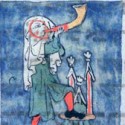
[ The holiday of Rosh Hashanah begins Sunday, October 2nd at sundown... ]
09.27.16 (Elul 24, 5776) We celebrate Rosh Hashanah because the LORD God is the great King over all -- our Creator and Redeemer. As the psalmist puts it, God is Melech Gadol al-kol-ha'aretz, (מֶלֶךְ גָּדוֹל עַל־כָּל־הָאָרֶץ), a "great King over all the earth" (Psalm 47:2). Indeed Rosh Hashanah is a "sanctified reminder" of God's creative authority in our lives. Yeshua (Jesus) is called the Mashiach (מָשִׁיחַ), a term that denotes His Kingly dignity and royalty (this idea is unfortunately obscured by the Greek word "Christ"). Yeshua is also borei Olam - the Creator and Sustainer of all creation (Col. 1:16). He is coming to rule and reign from Jerusalem (Zion) in the near future. Christians will be judged according to their deeds of service (2 Cor. 5:10) and the world system (and Satan) will be judged during the Great Tribulation period that precedes the Second Coming. Just as the heavenly shofar was sounded from Sinai, so it will be one day sounded from Zion (Isa. 27:13).
As the only true King and Judge, God indeed has a Sefer HaChayim (Book of Life) as well as a Sefer Ha-Metim (Book of Death). The Scriptures clearly warn that on the Day of Judgment to come, anyone's name not found written in the Book of Life will be thrown into the lake of fire (Rev. 20:15). The Kingship of our LORD should be of great interest to those who regard themselves as citizens of heaven, the dominion of our Savior and Lord (Phil. 3:20).
The New Testament links teshuvah with salvation (יְשׁוּעָה) itself. Yeshua's first message was "Repent and believe the gospel (בְּשׂוֹרָה)" (Mark 1:15), and Paul linked teshuvah with confession and trust in the saving work of the Messiah on our behalf (Rom. 10:8-13). Teshuvah implies a response to the Person of Yeshua that is demonstrated through confession that He is none other than YHVH, the LORD of Compassion and grace. The sound of the shofar is meant to awaken our hearts and to prepare for coming judgment.
Indeed, the Akedat Yitzchak ("Binding of Isaac") is a major theme of Rosh Hashanah. As he went to sacrifice his beloved son upon the altar at Moriah, Abraham prophetically said: "God will provide for himself the lamb" (אֱלהִים יִרְאֶה־לּוֹ הַשֶּׂה). After binding Isaac and raising the knife, however, the Angel of the LORD intervened and Abraham was given a ram as substitute. According to Jewish tradition, God told Abraham that the ram's horn (shofar) should be blown on Rosh Hashanah to remind the people of the substitutionary sacrifice provided by the LORD Himself -- an echo of the very First Sacrifice offered in Eden. In light of this, how much more then should we remember the sacrifice of Yeshua the Great Lamb of God during this time? (For more information, see the article, "The Gospel in the Garden.")
Ultimately we anticipate the prophetic fulfillment of the LORD's covenant faithfulness to Israel when we understand that Rosh Hashanah and the Yamim Nora'im ("Days of Awe") foreshadow the future salvation of Israel in the days to come. This pictures the Great Tribulation and Yom Adonai - the great Day of the LORD - that arrives just before national Israel's ultimate shuvah (return). Yom Kippur is the Holiday that pictures the full restoration of Israel to all her covenant promises with Yeshua as the recognized Kohen Gadol (High Priest) of the New Covenant. The new covenant will be embraced and Yeshua will be revealed as Israel's Savior and Redeemer. Then "all Israel shall be saved" (Rom. 11:26).
 |
For more on this subject, see Should Christians Celebrate Rosh Hashanah?
Call to Life and Joy...

09.27.16 (Elul 24, 5776) The call to teshuvah is a call to wonder, to the life of eternal verities and possibilities, to the way of love, joy, and peace that passes merely human understanding... "Who would wish to dwell among the nations and be numbered among them? The Lord would have His people follow a separate path. No, we walk the narrow way where all genuine pilgrims must go to follow the Lord" (Charles Spurgeon). Amen. "If then you have been raised with Messiah, seek the things that are above, where Messiah is, seated at the right hand of God. Set your minds on things that are above, not on things that are on earth, for you have died and your life is hidden with Messiah in God" (Col. 3:1-3). We are kedoshim - a "set apart people" - awakened to the sacred nature of life, alive to God's great passion, and undergoing the divine process of our eternal healing. Let us press on!
Matters of Life and Death...
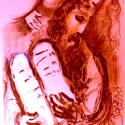
[ Our Torah portion this week, parashat Nitzavim, is always read on the last Shabbat of the year, since it describes the process of turning (teshuvah)... ]
09.27.16 (Elul 24, 5776) In our Torah portion this week (parashat Nitzavim) we note that we are constrained by God to choose either "the blessing or the curse," and that we are not free not to choose, since the LORD God created us to make that very choice... In other words, teshuvah is not optional: we cannot choose not to choose; we cannot "opt out" of our responsibility before God. Every human being faces the holy dilemma, and there is no way to avoid the "either/or" by attempting to somehow unite heaven and hell. Spiritually, we must learn to "choose to choose," since denying the power of our choice (e.g., by rationalizing, blaming others, playing the victim) means repudiating our identity as a soul made in the image of God, and this results in being inwardly "disfigured" and fragmented... Since our life is the expression of our choices, the goal of life is to unify the heart's affections, to consolidate the power of the will, and to freely yield to the truth of God. The so-called "freedom" the world offers is really the freedom from responsibility, that is, the evasion of conviction and abandonment of the truth. Real freedom is the power to choose righteousness rather than to slavishly follow the lusts and fears of the lower nature. This is a miraculous freedom given by Yeshua, who alone gives us authority over the yetzer hara and all the power of the devil (John 8:36; Luke 10:19; Heb. 2:14; 1 John 3:8).
הַעִידתִי בָכֶם הַיּוֹם אֶת־הַשָּׁמַיִם וְאֶת־הָאָרֶץ
הַחַיִּים וְהַמָּוֶת נָתַתִּי לְפָנֶיךָ
הַבְּרָכָה וְהַקְּלָלָה
וּבָחַרְתָּ בַּחַיִּים לְמַעַן תִּחְיֶה אַתָּה וְזַרְעֶךָ
ha·i·do·ti ba·khem ha·yom et ha-sha·ma·yim v'et ha·a·retz
ha·cha·yim ve·ha·ma·vet na·tat·ti le·fa·ne·kha
ha·be·ra·khah ve·ha·ke·la·lah
u·va·char·ta ba·cha·yim le·ma·an ti·che·yeh at·tah ve·zar·e·kha

"I call heaven and earth to witness against you today, that
I have set before you life and death, blessing and curse.
Therefore choose life, that you and your offspring may live"
(Deut. 30:19)

The choice is yours - and yours alone - to make. "See, I am setting before you today a blessing and a curse..." Note that the expression "before you" (לִפְנֵיכֶם) implies that we have real choice and free will (bechirah chofshit). Belief in free will coheres with the revelation of God's righteousness, since punishment is fitting only when a person has a genuine choice between doing right and wrong. As Abraham said, "Shall not the Judge of all the earth do what is just?" (Gen. 18:25). Likewise the idea of reward is meaningless if God simply decreed who was to be saintly and who was not. Indeed, the validity of moral choice is implied in the imperatives found in Scripture – "ought implies can." As Yeshua said, "Repent (i.e., shuv: turn to God) - and believe the good news" (Mark 1:15; Rev. 2:5).
Free will is paradoxical in light of God's sovereignty, of course, though the paradox itself is no reason to negate its truth. Most people want to chose either horn of this dilemma (e.g., consider the Calvinism/Arminianism theological controversy), but the truth is that salvation is both about God's sovereignty and your responsibility: "Work out (κατεργάζεσθε) your own salvation with fear and trembling, for it is God who works in you (θεὸς γάρ ἐστιν ὁ ἐνεργῶν ἐν ὑμῖν), both to will and to work for his good pleasure" (Phil. 2:12-13). As we believe, so we are given the means to please our LORD and obey His will. Remember who said, "Behold, I am coming soon, bringing my recompense with me, to repay everyone for what he has done" (Rev. 22:12).
We are always choosing, and therefore the Spirit of God says, "I have set before you today life and death, the blessing and the curse; therefore bacharta ba'chayim - choose life - that you may live!" This commandment [i.e., choosing life] is not too hard for you; nor is it beyond your reach: it is very near you - as close as your breath and as near as your heart. Therefore turn to God and embrace the message of salvation given in the Messiah Yeshua. There is no other way, and time is running out. Yeshua the Messiah is the LORD (יהוה), the Name above all names, melekh ha-kavod: the King of Glory; the only Wise God our Savior. One day every soul will give account of their choices before Him; then indeed every knee shall bow; every tongue confess the truth...
We must be gentle as we learn how to purposively choose life... Though each of us must make choices, and indeed we are always choosing, alas, we are weak, unfocused, frail, foolish, and in constant need of God's help. Therefore we must extend compassion to others: "Do not hate those who offend you, simply because you have not done the same. If they had your nature, they too might not have sinned; if you were like them, you might have done as they have done" (R' Samuel Kariver). We all have defects of character that are not entirely freely chosen; in light of this, we must show mercy and be quick to forgive others.
On Judgment Day, I like everyone else, will be allowed to hang all my unhappiness and suffering on a branch of the great Tree of Sorrows. Then, when I have found a limb from which my sorrows can dangle, I will walk slowly around that tree. Do you know what I will do on that walk? I will search for a set of sufferings I might prefer to those I have hung on the tree. But search as I may, I will not find any, and in the end, I will freely choose to reclaim my own personal set of sorrows rather than that of another. I will leave that tree wiser than when I got there, and I will be ready to walk toward the Tree of Life. (Hasidic Tales: Baal Shem Tov).
But be encouraged, chaverim. We are promised great help as we obey the message of Yeshua and walk by faith in God's unfailing love.... Those who are in relationship with the LORD through Yeshua are given the Holy Spirit (רוּחַ הַקּדֶשׁ) in the role of Comforter (παρακλητος), who gives us strength to persevere in the midst of the storms of this life (John 14:26; 15:26). Nonetheless, the central commandment remains: We must continually choose to trust in God's love and grace for our lives, every step of the way. God will never leave you nor forsake you (לא יַרְפְּךָ וְלא יַעַזְבֶךָּ), but He continues to say to those who trust in Him: "Behold, I have stood at the door and knocked. If anyone hears my voice and opens the door, I will come in to him and eat with him, and he with me" (Rev. 3:20). Set the LORD always before you so that you will remain unmoved.
Note: We choose with the heart... "If your heart does not want a world of moral reality, your head will assuredly never make you believe in one" (William James). In other words, reason is a servant of the will -- of the passions -- and there is nothing more common than to find it employed in the task of excusing the most egregious of human behavior. We see this in politics of all kinds... Therefore it is often useless to argue over moral truth; it is far better to live in God's Presence and let the Spirit manifest divine power through you.
Lift up your heads...
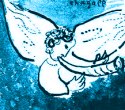
09.27.16 (Elul 24, 5776) Rosh Hashanah literally means the "head of the year," and it traditionally marks the anniversary of the creation of mankind. The sages note that where it is written, "When you take a census of the children of Israel" (Exod. 30:12), the Hebrew reads, "When you lift up the heads (כִּי תִשָּׂא אֶת־ראשׁ) of the children of Israel," which implies that each person should be encouraged to understand that they "count" in the eyes of Heaven. The sages also not that the word "Israel" (יִשְׂרָאֵל) contains the letters that form the phrase li rosh (לִי ראשׁ), "there is to me a head," that is, a soul created in the image of God.
During Rosh Hashanah we affirm our faith that the LORD our God is the great King over all the earth (מֶלֶךְ גָּדוֹל עַל־כָּל־הָאָרֶץ). The Hebrew word "king" is melekh (מֶלֶךְ), the value of which is 90, the same as the Hebrew letter Tzadi (צ), meaning "Righteous One." Indeed some of the sages say that the word "amen" (אמן) is an acronym for the phrase El Melekh Ne'eman (אֵל מֶלְךְ נֶאֱמָן) - "God is a Righteous King." The LORD is a God of faithfulness and without iniquity, just and upright is he (Deut. 32:4). The LORD God, the Righteous One has "ascended with a shout, the LORD with the sound of a shofar" (Psalm 47:5). This refers to the ascension and glorification of our Savior Yeshua, who ascended in triumph over sin and death our behalf. As is written: "Sing praises unto our King, sing praises!" (Psalm 47:6). L'Chayim b'Yeshua - to Life in Yeshua, friends!
Return of the Captives...

[ The following is related to this week's Torah reading, parashat Nitzavim... ]
09.27.16 (Elul 24, 5776) "The LORD your God will return as you return, and will have mercy upon you, turning to gather you back..." (Deut 30:3). This has both a present and prophetic application. First, in the present hour, if you turn to God, he will show you compassion, and he will "gather back" all those distant and fragmented parts of yourself into shalom and wholeness. He will restore your lost days; he will bring you out of exile and give you comfort in Yeshua. He makes all things new. "Draw near, therefore to God, and he will draw near to you" (James 4:8). Second, the LORD will return to earth as the Jewish people return from their captivity, and he will restore Zion during the time of the final redemption. The LORD will turn captivity into mercy; he will turn in his compassion to his people. As it is written: "I will be found by you, declares the LORD... and I will bring you back..." (Jer. 29:14).
 |
The language of the Torah here is emphatic: "even if your exile is at the farthest edge of heaven (בִּקְצֵה הַשָּׁמָיִם), from there the LORD your God will gather you..." (Deut. 30:4). Note that this prophecy is written in the singular and therefore pertains to each individual exile. God will "gather you," that is, he bring you back to make you whole. Even if your exile (singular) is to the uttermost, the LORD will take you and deliver you, as it is written, "He is able to save to the uttermost (σῴζειν εἰς τὸ παντελὲς) those who draw near to God through him, since he always lives to make intercession for them" (Heb. 7:25).
The Day of Judgment....
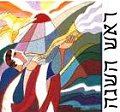
09.26.16 (Elul 23, 5776) Rosh Hashanah (ראש השנה) begins Sunday October 2nd (at sundown) this year. According to traditional Jewish thinking, this holiday commemorates the creation of mankind by God. The Mishnah (earlier part of the Talmud) refers to Rosh Hashanah as the "Day of Judgment" (Yom ha-Din) since all of creation owes allegiance to the Creator and is accountable to Him. The Name Elohim (אֱלהִים) revealed in Genesis 1:1 bespeaks God as the Creator and Judge of the universe (the Name YHVH, on the other hand, reveals God's compassion, as the One who intimately relates to humanity and breathes into us the breath of life (Gen. 2:4)). In Jewish tradition on Rosh Hashanah we stand before God as our personal Creator and Judge. Many Messianic Jews believe that the sound of the shofar on Rosh Hashanah is a symbol of the rapture (ἁρπάζω) of the followers of the Messiah.
According to tradition, on Rosh Hashanah the destiny of the righteous, the tzaddikim, are written in the Book of Life (סֵפֶר הַחַיִּים), and the destiny of the wicked, the resha'im, are written in the Book of Death (סֶפֶר הַמָּוֵת). However, most people will not be inscribed in either book, but have ten days -- until Yom Kippur -- to repent before "sealing" their fate. On Yom Kippur, then, everyone's name will be sealed in one of the books. The ten days between Rosh Hashanah and Yom Kippur are therefore called Aseret Yemei Teshuvah (עֲשֶׂרֶת יְמֵי תְּשׁוּבָה) - the "Ten Days of Repentance" - so called because it is thought that personal repentance during this time affects the divine decree for the coming year...
 |
As Messianic believers, we maintain that (in a spiritual sense) "Judgment Day" has come and justice was served through the sacrificial offering of Yeshua for our sins (2 Cor. 5:21). He is the perfect fulfillment of the Akedah of Isaac. Our names are written in the Lamb's Book of Life, or Sefer HaChayim (Rev. 13:8). We do not believe that we are made acceptable in God's sight by means of our own works of righteousness (Titus 3:5-6), but of course that does not excuse us from being without such works (as fruit of the Holy Spirit in our lives). The Scriptures clearly warn that on the Day of Judgment to come, anyone's name not found written in the Book of Life will be thrown into the lake of fire (Rev. 20:15). Moreover, professing Christians will stand before the Throne of Judgment to account for their lives (2 Cor. 5:10). As it is written: "Every man's work shall be made manifest: for the day shall declare it, because it shall be revealed by fire; and the fire shall try every man's work of what sort it is" (1 Cor. 3:13). Life is an examination, a test, and every moment is irrepeatable. Every "careless" word we utter will be echoed on the Day of Judgment (Matt. 12:36-37). Our future day of judgment is being decided today....
The Prophetic Calendar...

09.26.16 (Elul 23, 5776) The spring festivals (Passover, Firstfruits, and Shavuot) have been perfectly fulfilled in the first coming of Yeshua as Mashiach ben Yosef, and the fall festivals (Teruah, Yom Kippur, and Sukkot) will be fulfilled in His second coming as Mashiach ben David. Since the first advent fulfilled all of the spring mo'edim to the smallest of details, we believe that His second advent portends similar fulfillment as revealed in the fall mo'edim.
After the summer of harvest (John 4:35), the very first fall festival on the Jewish calendar is Yom Teruah, which is a picture of the "catching away" of kallat Mashiach (the Bride of Messiah) for the time of Sheva Berachot (the seven "days" of blessing that follows the traditional marriage ceremony). Then will come the Great Tribulation and Yom Adonai - the Day of the LORD (יוֹם יְהוָה). The heavenly shofar blasts heard at Sinai will be reissued from Zion. First will be the gathering together of those who follow the Messiah (i.e., those declared tzaddikim because they trust in the merit of Yeshua's sacrifice), and then God's war against Satan and the world system will begin, culminating in the long-awaited coronation of the King of King of Kings - Melech Malchei Ha-Melachim (מֶלֶךְ מַלְכֵי הַמְּלָכִים).
Rosh Hashanah (or better, Yom Teruah) is therefore a sacred time that has prophetic significance for the Messianic believer, since it commemorates both the creation of the mankind by Adonai as well as the "calling up" of the new creation at the behest of Yeshua, when the sound of the heavenly shofar inaugurates the anticipated End of Days (1 Cor. 15:51-54; 1 Thess. 4:15-18). Indeed, "teruah" (תְּרוּעָה) is a "calling up" signal for those who belong to Messiah, sounded during the opening of the "Gate to the Wedding" of the great Lamb of God. It also prefigures the coming Day of the LORD and Great Tribulation period that marks God's judgment on an unbelieving world...
Note: For more on this topic, see "Introduction to the Jewish Calendar."
Turning, turning, turning...

[ The holiday of Rosh Hashanah begins Sunday, October 2nd at sundown this year... ]
09.26.16 (Elul 23, 5776) "Turning, turning, turning..." Every year we revisit the theme of "repentance" by 1) turning to God (teshuvah); 2) turning to others we've offended (mechilah), and 3) turning to those in need (tzedakah); and every year we take inventory of our lives (cheshbon ha'nefesh) with the goal of growing and taking responsibility for our lives. We regret those decisions in our past that have desensitized us to the sacred, and we seek spiritual renewal to serve God more faithfully in the year to come. Simcha Bunim said of the ongoing cycle of teshuvah: "On Rosh Hashanah the world begins anew, and therefore before it begins anew, it comes to an end. Just as before dying all the powers of the body clutch hard at life, so a person at the turn of the year ought to clutch at life with all his strength and might" (Bunim quote taken from Buber: "Tales of the Hasidim,"1947).
Different sins require different types of confession. Sins against God (i.e., bein Adam la-Makom: בֵּין אָדָם לָמָקוֹם) require confession to God alone for the sake of obtaining divine forgiveness. Sins against others (i.e., bein Adam l'chavero: בֵּין אָדָם לְחֲבֵרוֹ) require that we personally acknowledge our harm to them and ask them for mechilah (מְחִילָה), forgiveness. Finally, sins against ourselves require that we admit that we have damaged our own lives and be willing to accept personal forgiveness. "For those whom we have wronged (including ourselves), may we be forgiven..."
There is a godly sorrow that works recovery within our hearts. "For godly grief produces a repentance that leads to salvation without regret, whereas worldly grief produces death" (2 Cor. 7:10). This kind of sorrow is healing, since it moves us to return to the source of Love we so desperately need. May God all bless us with such sorrow, the "gift of tears."
A Matter of Life and Death...

[ The following is related to our Torah reading for this week, parashat Nitzavim... ]
09.26.16 (Elul 23, 5776) "I have set before you life and death, blessing and curse; therefore choose life (בָּחַרְתָּ בַּחַיִּים), that you and your offspring may live" (Deut. 30:19). Does it seem obvious to you that a person would choose life and live? Yet so many refuse this very thing; they do not choose life but rather take a self-destructive path.... They do so, undoubtedly, because they are spiritually blind, taken captive by the delusions and vanities of this evil world. Despite the incalculable cost – the pain, sorrow, and the inevitable loss – people persist in their lawless self-will, enslaved to their passions, without an abiding center, and therefore without a true self. The miracle of God imparts the will to "choose life" by trusting in the power of the Messiah. As it is written, "Whoever has the Son has the life (הַחַיִּים); whoever does not have the Son of God does not have life" (1 John 5:12).
Nitzavim and Rosh Hashanah...

[ Our Torah portion this week, parashat Nitzavim, is always read on the Sabbath before Rosh Hashanah, since it describes the process of turning (teshuvah)... ]
09.25.16 (Elul 22, 5776) Parashat Nitzavim is always read on the Sabbath before Rosh Hashanah, serving as a prelude to the holiday. The sages found an allusion to Rosh Hashanah in the opening verse: "You are standing today all of you before the LORD your God" (Deut. 29:10), where "this day" refers to Rosh Hashanah, when "all of you" shall stand before the LORD your God in judgment. The "last" shofar blast refers to Rosh Hashanah when the dead shall be raised (Rosh Hashanah 16b), whereas the "great" shofar blast is sounded at the end of Yom Kippur, after Israel has received the atonement.
According to many of the sages, the time immediately preceding the appearance of the Messiah will be a time of testing (nisayon) in which the world will undergo various forms of tribulation called chevlei Mashiach (חֶבְלֵי הַמָּשִׁיחַ) - the "birth pangs of the Messiah" (Sanhedrin 98a; Ketubot, Bereshit Rabbah 42:4, Matt. 24:8). Some say the birth pangs are to last for 70 years, with the last 7 years being the most intense period of tribulation -- called the "Time of Jacob's Trouble" / עֵת־צָרָה הִיא לְיַעֲקב (Jer. 30:7). The climax of the Great Tribulation is called the great "Day of the LORD" (יוֹם־יהוה הַגָּדוֹל) which represents God's wrath poured out upon a rebellious world system. On this fateful day, the LORD will terribly shake the entire earth (Isa. 2:19) and worldwide catastrophes will occur. "For the great day of their wrath has come, and who can stand?" (Rev. 6:17). The prophet Malachi likewise says: "Surely the day is coming; it will burn like a furnace. All the arrogant and every evildoer will be stubble, and that day that is coming will set them on fire,' says the LORD Almighty. 'Not a root or a branch will be left to them'" (Mal. 4:1). Only after the nations of the world have been judged will the kingdom of God (מַלְכוּת הָאֱלהִים) be established upon the earth. The remnant of Israel will be saved and the 1,000 year reign of King Messiah will then commence (Rev. 20:4). For more information about this, see "As the Day Draws Near."
Waking Up to Reality...

[ The following is related to the month of Elul and the theme of spiritual renewal... ]
09.25.16 (Elul 22, 5776) It's vital to remember that one of the main tactics of the devil is to cast a spell over you to induce a sense of forgetfulness and apathy... The devil wants you to forget that you are a child of the King. The entire venture of teshuvah (repentance) presupposes that you are created b'tzelem Elohim - in the image of God - and therefore you have infinite value and dignity. This is all the more evident in light of the awesome ransom that Yeshua paid to reconcile your soul with God. So what is the greatest sin you can commit in your life? To forget what God has done for you... Remaining asleep, unmindful of your true identity is one of the most tragic things of life. Therefore Rosh Hashanah is sometimes called Yom Ha-Zikaron - the "Day of Remembrance" (Lev. 23:24). The blast of the shofar is meant to jolt us from our sleep... We are to remember who we really are -- to remember that God is our King. The person who says, "Tomorrow I will do teshuvah" really is saying, "Not now." And then tomorrow comes and he says, "Not now." And in this way his entire life passes by, saying, "Not now." Finally one day he wakes up only to find himself already dead. May God help us wake up to the Reality that is set before us.
 Listen to the Shofar (click speaker icon) Listen to the Shofar (click speaker icon)
During this season (and always) we make a conscious effort to turn back to reality: first, we turn back to God and to ourselves (i.e., self-examination and confession); second, we turn to others we have harmed (i.e., asking for forgiveness), and third, we turn to others in need (i.e., giving tzedakah). I realize that we are to do teshuvah every day, of course (Psalm 16:8); though the "Season of Teshuvah" provides us with an opportunity to again remember the importance of these matters. As Yisrael Salanter wisely said: "Consider every day as if were an Elul day, and Elul itself is of course Elul."
The last Sabbath of the Year...
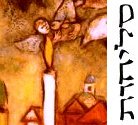
[ Our Torah portion this week, parashat Nitzavim, is always read on the Sabbath before Rosh Hashanah, since it describes the process of turning (teshuvah)... ]
09.25.16 (Elul 22, 5776) Parashat Nitzavim is always read on the Shabbat immediately before the solemn holiday of Rosh Hashanah, and therefore it is the last portion read before the new Jewish year. In many synagogues, the opening and concluding paragraphs of Nitzavim are also read during the Yom Kippur morning service.
Nitzavim begins: "You are standing here today, all of you, before the LORD your God (אַתֶּם נִצָּבִים הַיּוֹם כֻּלְּכֶם לִפְנֵי יְהוָה אֱלהֵיכֶם) ... so that you may enter into the sworn covenant of the LORD your God, which the LORD your God is making with you today, that he may establish you today as his people, and that he may be your God, as he promised you, and as he swore to your fathers, to Abraham, to Isaac, and to Jacob" (Deut. 29:10-13). After this Moses went on to review Israel's history and prophetic future -- i.e., the great prophecy of the Diaspora and Return of the people -- and then he solemnly appealed for us to turn to the LORD for life:
הַעִידתִי בָכֶם הַיּוֹם אֶת־הַשָּׁמַיִם וְאֶת־הָאָרֶץ
הַחַיִּים וְהַמָּוֶת נָתַתִּי לְפָנֶיךָ הַבְּרָכָה וְהַקְּלָלָה
וּבָחַרְתָּ בַּחַיִּים לְמַעַן תִּחְיֶה אַתָּה וְזַרְעֶךָ
ha·i·do·ti va·khem hai·yom et ha·sha·ma·yim ve·et ha·a·retz
ha·chai·yim ve·ha·ma·vet na·ta·ti le·fa·ney·kha ha·be·ra·khah ve·ha·ke·la·lah
u·va·char·ta ba·chai·yim, le·ma·an tich·yeh at·tah ve·zar·e·kha

"I call heaven and earth to witness against you today,
that I have set before you life and death, blessing and curse.
Therefore choose life, that you and your offspring may live.
(Deut. 30:19)

The way of return (teshuvah) is always a matter of the heart and will: bacharta ba'chayim: "Choose Life!" "For this commandment (of teshuvah) is not hidden from you, and it is not far away. It is not in heaven...nor across the sea.... Rather, the matter is very near you - in your mouth and your heart - to do it" (Deut. 30:11-14; cp. Rom. 10:8-13). In the end of days (acharit hayamin), the LORD will remove the "partial hardening" of the Jewish people so that they will turn to Him with all their heart and soul (Deut. 30:6, Rom. 11:25-26).
But why this seemingly topsy-turvy process of teshuvah? Why do the Jewish people have to go through this long period of suffering, tribulation, and scattering, only to be finally regathered one day in the future? Moses himself gives us the answer (as does the Apostle Paul in the Book of Romans): "The secret things (ha-nistarot) belong to the LORD our God (הַנִּסְתָּרת לַיהוָה אֱלהֵינוּ), but the things that are revealed (ha-niglot) belong to us and to our children forever, that we may do all the words of this law" (Deut. 29:29). Part of the "secret things" concerns the mystery the suffering of the Jewish people, since it is clear that God particularly afflicts those whom he loves through testing, and indeed part of the meaning of being am segulah (a "select people") implies dealing with God - by means of blessing or by curse (Heb. 10:31). In the end, however, God's plan for Israel will decisively demonstrate His wisdom, power, and glory, so much so that that Paul commented on ethnic Israel's future by exclaiming, "Oh, the depth of the riches and wisdom and knowledge of God! How unsearchable are his judgments and how inscrutable his ways" (Rom. 11:33).
We are closer than ever, chaverim.... We must not put our trust in man or in this moribund world system (κοσμος). We are undoubtedly living close to the "end of days." God's judgment has begun in earnest. It is time for us to choose whether we will be shaken or if we will walk in the trust of the LORD God of Israel. Choose this day.
Rosh Hashanah of Fall...

[ The following is related to Rosh Hashanah and the theme of teshuvah (repentance)... ]
09.23.16 (Elul 20, 5776) Spiritual danger is just as real as physical danger, though most people pretend it isn't because it isn't easily seen. The real dangers of life are not vulnerability to crime, sickness or some accident, however, but rather susceptibility to despair, the tendency to put off repentance, and the possibility of not dying well.... It is a great danger to walk through life asleep only to be jolted awake upon the day of death. "The greatest danger is that one does not discover, that one is not always discovering, that one is in danger" (Kierkegaard). Danger of what? Of wasting your life with trifles and vanities; of never learning how to truly love or to be loved; of becoming numb, unfeeling, and therefore unmoved by your need for God. As C.S. Lewis once wrote, "The safest road to hell is the gradual one - the gentle slope, soft underfoot, without sudden turnings, without milestones, without signposts." Therefore during this season we cry out: Hashivenu Adonai elekha venashuvah: "Return us to You, O LORD, and we shall return..." (Lam. 5:21).
הֲשִׁיבֵנוּ יְהוָה אֵלֶיךָ וְנָשׁוּבָה
חַדֵּשׁ יָמֵינוּ כְּקֶדֶם
ha·shi·ve·nu Adonai e·ley·kha ve·na·shu·vah
cha·desh ya·me·nu ke·ke·dem

"Turn us back to yourself, O LORD, so that we may return to you;
renew our days as of old" (Lam. 5:21)

Hebrew Study Card
Note: Generally speaking there are two "New Years" in the Biblical calendar and Jewish tradition. The first occurs two weeks before Passover (on the new moon of Nisan) and the second occurs during Rosh Hashanah (on the new moon of Tishri). The first marks the month of the redemption of the Israelites from Egypt by the blood of the lamb (דַּם הַשֶּׂה) -- and it is also the month in which Yeshua was sacrificed upon the cross at Moriah to redeem us from our sins. The second marks the month of Israels' corporate salvation that will be fulfilled in the prophesied End of Days...
Teshuvah of Faith...

09.23.16 (Elul 20, 5776) Teshuvah ("repentance") is an ongoing journey toward wholeness, and in this life we never fully arrive: we are always "on the road," and often we are in the dark... The way of teshuvah is therefore more of a question about how we walk the road than what the road is like or even where it may take us. As we turn to God, as we experience His claim on our lives and trust that we are His redeemed people, questions about "how" are revealed, one step at a time. We take up the cross daily, and in doing so we find ourselves on the road, even if we may not know where it is immediately taking us.
מִי בָכֶם יְרֵא יְהוָה שׁמֵעַ בְּקוֹל עַבְדּוֹ
אֲשֶׁר הָלַךְ חֲשֵׁכִים וְאֵין נגַהּ לוֹ
יִבְטַח בְּשֵׁם יְהוָה וְיִשָּׁעֵן בֵּאלהָיו
mi · va·khem · ye·rei · Adonai · sho·mei·a · be·kol · av·do?
a·sher · ha·lakh · cha·she·khim · ve·ein · no·gah · lo?
yiv·tach · be·Shem · Adonai · ve·yi·sha·en · be·lo·hav

"Who among you fears the LORD and obeys the voice of his servant?
Let him who walks in darkness and has no light
trust in the Name of the LORD and rely on his God."
(Isa. 50:10)

It is dangerous to assume that a person who is walking in spiritual darkness must necessarily be outside of God's will, or that such a person is being punished by God. That, after all, was the karma-based theology delivered to Job by his religious friends... On the contrary, as Charles Spurgeon reminds us, "Spiritual darkness of any sort is to be avoided and not desired; and yet, surprising as it may seem to be, it is a fact that some of the best of God's people frequently walk in darkness; some of them are wrapped in a sevenfold gloom at times, and to them neither sun, nor moon, nor star appears. As the pastor of a large church, I have to observe a great variety of experiences, and I note that some of whom I greatly love and esteem, who are, in my judgment, among the very choicest of God's people, nevertheless, travel most of the way to heaven by night."
"My Lord God, I have no idea where I am going. I do not see the road ahead of me, I cannot know for certain where it will end. Nor do I really know myself, and the fact that I think I am following your will does not mean I am actually doing so. But I believe the desire to please you does in fact please you, and I hope I have that desire in all that I am doing. I hope that I will never do anything apart from that desire. And I know that if I do this you will lead me by the right road, though I may know nothing about it. Therefore, I will trust you always, though I may seem to be lost and in the shadow of death. I will not fear, for your are ever with me, and you will never leave me to face my perils alone." - Thomas Merton (Thoughts In Solitude)
Indeed, Yeshua himself entered into thick darkness for our sake, and he sometimes calls his followers go there, too (Col. 1:24). "Through struggle with his demons and the encounter with the LORD, Anthony had learned to diagnose the hearts of people and the mood of his time and thus to offer insight, comfort, and consolation. Such had made him a compassionate man." (Wisdom of the Desert Fathers)
There is a "center" or focus for life, however, and that is the cry of the heart for the LORD Himself. Therefore the LORD is called El Ne'eman (אֵל נֶאֱמָן), "the faithful God." His very Name means certainty, reliability, strength, truth, reality, presence, being, life, and so on... It follows from this that doubt is never from God, since the one who doubts is "driven like a wave of the sea and tossed" by the winds of change. We are given strength from heaven when we exercise bittachon (trust) that God is faithful and true, despite passing through the valley of the shadow of death itself. God abides with us during our sojourning. The LORD is the only enduring Reality in a constantly changing world, this world of flux and shadows, and He has designed it this way to cause men's hearts to search for him. "All flesh is grass, and all its beauty is like the flower of the field" - such is the condition of this ephemeral world and its fortunes. The flesh fades because the breath of the LORD blows (רוּחַ יְהוָה נָשְׁבָה) upon it (Isa. 40:7). God Himself has ordained human life to be a vapor:
יָבֵשׁ חָצִיר נָבֵל צִיץ
וּדְבַר־אֱלהֵינוּ יָקוּם לְעוֹלָם
ya·vesh · cha·tzir · na·vel · tzitz
u·de·var · E·lo·hei·nu · ya·kum · le·o·lam

"The grass withers, the flower fades,
but the word of our God will stand forever."
(Isa. 40:8)

Hebrew Study Card
Nonetheless, despite the inescapable dissolution of life in this world, we are told not to fear, because there is good news for Zion: the LORD is coming with might to reward those who are waiting for him. He will tend his flock like a shepherd; he will gather his lambs and carry them close to his heart (Isa. 40:11). As the apostle Peter said, this good news is the eternal life given through the imperishable "seed" - the Word of God that rises forever in Yeshua (1 Pet. 1:23-25). May His Name be praised forever...
Kuma Na - Please arise!
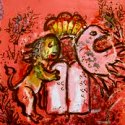
[ The following entry concerns this week's Torah reading, parashat Ki Tavo. Please read the Torah portion to "find your place" here. ]
09.23.16 (Elul 20, 5776) It was an old custom that on the Saturday night before Rosh Hashanah, just a few minutes before midnight, the town shamash would go through the neighborhood, rapping three times on each door shouting, Kuma na! - "Please arise to serve the Creator!" And everyone would quickly assemble for selichot (i.e., penitential) prayers. The appeal to the revelation of the Name YHVH (יהוה) and the 13 attributes of God's mercy is the central theme of the midnight prayer service...
Contrary to what you might expect, the recitation of the traditional selichot (i.e., the 'A' to 'Z' confession of sins) is recited with joy, based on a passage from our Torah portion this week which says that we are punished "because we did not serve God with rejoicing and a full heart" (Deut. 28:47). The essence of joy is a sense of well-being and gratitude that comes from trusting in God's love. This is implied in the bikkurim (firstfruits) ceremony that begins the portion. We are commanded to take our "first fruits," go to the Temple, and express our thanks: ve'samachta bekhol ha-tov asher natan lekha (וְשָׂמַחְתָּ בְכָל־הַטּוֹב אֲשֶׁר נָתַן־לְךָ) - "you will celebrate for all the good God has given you" (Deut. 26:11).Ultimately we find lasting joy when we trust that we are truly loved, forgiven, and accepted -- despite the long litany of our sins... Therefore we find consolation and joy in the salvation given in Yeshua our LORD, who gave up His life so that we could be accepted by God.
"A person reposes in the forgiveness of sins when the thought of God no longer reminds him of the sin, but of the fact that it is forgiven, so that what is past is not a recollection of how much he offended, but of how much he has been forgiven.... Eternal justice can and will forget in only one way - through forgiveness in Christ - but then, of course, the believer must not forget and must steadfastly recollect that it is forgiven him." (Kierkegaard, Journals)
Turning as a Child...
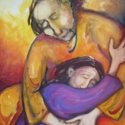
09.23.16 (Elul 20, 5776) There is no teshuvah apart from humility (Matt. 5:5). The disciples of Yeshua came asking, "Who is the greatest in the kingdom of heaven?" And calling to him a child, he put him in the midst of them and said, "Truly, I say to you, unless you turn (shuv) and become like children (להְיוֹת כַּיְלָדִים), you will never enter the kingdom of heaven" (Matt. 18:2-3). Said the Kotzer Rebbe, "It is proper to weep during the High Holy Days in order to show that despite all our seeming wisdom and learning, we are as helpless as little children who weep for what they desire." "I thank you, Father, Lord of heaven and earth, that you have hidden these things from the wise and understanding and revealed them to little children; yes, Father, for such was your gracious will" (Matt 11:25-26).
The late Henri Nouwen once wrote, "I am beginning to see that much of praying is grieving." Contrition, grief, and regret for our sins is at the heart of genuine teshuvah. Mourning is a expression of utter humility, helplessness, and need. In this life we sorrow over many things, but we inwardly cry for our Abba, for our heavenly Father's love...
An Ever-Present Mercy...
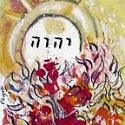
09.23.16 (Elul 20, 5776) Since Rosh Hashanah is known as the "Day of Judgment" (i.e., yom ha'din: יום הדין), it is customary to offer additional prayers of supplication (selichot) before the advent of the holiday. These prayers appeal to God's compassion and often include the recitation of "shelosh esrei middot rachamim," that is, the thirteen attributes of God's mercy (Exod. 34:6-7). The thirteen attributes reveal the inner meaning of God's Name YHVH (יהוה) that was disclosed to Moses after the people had committed the dreadful sin of the worshiping the golden calf at Sinai. God is not only our Judge and Lawgiver (Elohim), but our Savior and our Healer (Moshia). In his great mercy He restores what we have broken; He overcomes our jugdment by means of his abounding love given to us in Yeshua (Psalm 85:10). We therefore appeal to YHVH as the Source of Compassion, the "breath of life" (נִשְׁמַת חַיִּים) that was imparted to Adam on the day he was first created (Gen. 2:7).
יְהוָה יְהוָה אֵל רַחוּם וְחַנּוּן
אֶרֶךְ אַפַּיִם וְרַב־חֶסֶד וֶאֱמֶת
נצֵר חֶסֶד לָאֲלָפִים
נשֵׂא עָוֹן וָפֶשַׁע וְחַטָּאָה וְנַקֵּה לא יְנַקֶּה
פּקֵד עֲוֹן אָבוֹת עַל־בָּנִים
וְעַל־בְּנֵי בָנִים עַל־שִׁלֵּשִׁים וְעַל־רִבֵּעִים
Adonai Adonai El ra·chum ve·chan·nun
e·rekh ap·pa·yim ve·rav che·sed ve·e·met
no·tzeir che·sed la·a·la·fim
no·sei a·von va·fesh·a ve·cha·ta·ah ve·nak·keh lo ye·nak·keh
po·keid a·von a·vot al ba·nim
ve·al be·nei va·nim al shil·le·shim ve·al rib·bei·im

"The LORD, the LORD, a God merciful and gracious,
slow to anger, and abounding in steadfast love and faithfulness,
keeping steadfast love for thousands,
forgiving iniquity and transgression and sin, but who will by no means clear the guilty, visiting the iniquity of the fathers on the children
and the children's children, to the third and the fourth generation"
(Exod. 34:6-7)

The Torah teaches that the Name of the LORD (יהוה) means both ehyeh (אֶהְיֶה) "Presence" and rachum v'chanun (רַחוּם וְחַנּוּן), "Mercy and Grace" (Exod. 3:14; 34:6-7). Yeshua said, "I go to prepare a place for you," which means that his presence and love are waiting for you in whatever lies ahead (Rom. 8:35-39). We live and move and have our being in God's love. To worry is "practicing the absence" of God instead of practicing His Presence... Trust the word of the Holy Spirit: "For I know the plans I have for you, declares the LORD, plans for healing peace and not for evil, to give you a future and a hope (Jer. 29:11).
Love covers a multitude of sins (Prov. 10:12; 1 Pet. 4:8)... Love sees beyond the present moment to behold the redeemable, the made whole, the beloved. Such love "believes all things" and yet is never deceived. "Just as one by faith believes the unseen into what is seen, so the one who loves by forgiveness believes away what is seen. Both are faith. Blessed is the believer, he believes what he cannot see; blessed is the one who loves, he believes away that which he indeed can see" (Kierkegaard: Works of Love).
For more on this subject, see the Elul and High Holiday pages...
Significance of the Shofar...

09.22.16 (Elul 19, 5776) A prominent aspect of Rosh Hashanah is the sounding of the shofar (i.e. ram's horn), and indeed the original name for this holiday was Yom Teruah, "the day of trumpets" (Lev. 23:24). The shofar first brings to mind the ram caught in the thicket by its horns which Abraham sacrificed in place of his son Isaac at Mount Moriah (see Gen. 22:13). By extension, this "Ram of God" -- prepared from the "foundation of the world" -- is a picture of substitutionary sacrifice of the God's Son for the sins of the world. Indeed, the first occurrence of the word love in the Torah (אהבה, ahavah, in Gen. 22:2) refers to a father's love for his "only" son who was offered as a sacrifice, a clear foreshadowing of the greater "Akedah message" of the Gospel (John 3:16). Note in this connection that the sacrificial redemption involved violent spiritual warfare between God and the Satan (Gen. 3:15). For the believer in Yeshua, the blast of the shofar represents the shout of God's victory (נִצָּחוֹן) over the power of sin and death. And since finding God is our greatest joy, King David rightly wrote: "Happy is the people who know the teruah [i.e. the shofar blast]" (Psalm 89:16).
The shofar is mentioned in connection with both Rosh Hashanah (Lev. 23:24, Num. 29:1) and the Yom Kippur Jubilee: "Then, on the tenth day of the seventh month, on Yom Kippur, you are to sound a blast on the shofar; you are to sound the shofar all through your land" (Lev. 25:9). In later Jewish history, since the shofar was sounded throughout the preceding month of Elul, the blowing of the shofar on the first of Tishri (i.e., Rosh Hashanah) was sometimes called "the last trump," while the shofar blast on Yom Kippur was called the "great trump," since at that time judgment was sealed.
Note: The midrash says that the sound of the shofar is the only language the devil doesn't understand. Now while that may serve as homiletic story, it is more accurate to say that the devil doesn't understand the language of love, the language of truth, the language of compassion, and especially the language of God's heart for us and the cry of our heart for God.... For more on this topic, see the full article: "The Significance of the Shofar."
A Stubborn Faith...

09.22.16 (Elul 19, 5776) During the "Season of Repentance" we read from the Torah of how Moses appealed to God: "If now I have found favor in your sight, O Lord, please let the Lord go in the midst of us, for it is a stiff-necked people, and pardon our iniquity and our sin, and take us for your inheritance" (Exod. 34:9). Note the "holy audacity" of Moses' request as he seems to say that because the people were "stiff-necked" (קְשֵׁה־ערֶף), God should draw close to them and forgive their sin. Of course stubborn rebellion against God is always wrong, but here Moses points to a different aspect of stubbornness – the solemn determination of the will that refuses to let go of hope in God. This the "strong hold" Jacob put upon the Angel of the LORD that moved God to impart to him the name "Israel" (Gen. 32:26-28). A persevering hope refuses to let go of God until it receives the blessing... Indeed, such earnest faith pleases God: it holds firmly to the conviction of things unseen and refuses to let go of the substance of hope (Heb. 11:1,6). As David, a man "after" God's heart once said: echat sha'alti me'at Adonai (אַחַת שָׁאַלְתִּי מֵאֵת־יְהוָה) "one thing have I asked of the LORD," otah avakesh (אוֹתָהּ אֲבַקֵּשׁ) that will I seek: that I may dwell in the house of the LORD all the days of my life, to gaze upon the beauty of the LORD and to inquire in his temple" (Psalm 27:4).
Personal Update: Please remember me, John (Hebrew for Christians) in your prayers, friends. I have had some ongoing health issues and tomorrow I go back to the doctor for another exam. Please ask God for a complete healing and deliverance. Thank you so much.
Ambivalence of Despair...
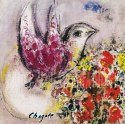
09.22.16 (Elul 19, 5776) Many people live in despair because they are double-minded. Consciously or not, they are attempting to look at two different things at once. They seek their end in a world of finite things – in "good fortune," in personal honor, in worldly entertainment, or other immediacies of the passing day. Such a cross-eyed approach leads to disorientation and spiritual destruction. A divided house cannot stand. But to be single-minded means first of all making the sincere decision to believe, and then confessing your faithlessness to God. As Soren Kierkegaard wisely observed: "No person is saved except by grace; but there is one sin that makes grace impossible, and that is dishonesty; and there is one thing God must forever and unconditionally require, and that is honesty." Therefore we are instructed to confess our faults one to another, and pray for one another, that we may be healed (James 5:16). As it is written: "You must be wholehearted (i.e., simple; sincere) with the LORD your God" (Deut. 18:13).
תָּמִים תִּהְיֶה עִם יְהוָה אֱלהֶיךָ
ta·mim · ti·he·yeh · im · Adonai · E·lo·he·kha

"You shall be wholehearted with the LORD your God"
(Deut. 18:13)

When we study Scripture or things of "religion," we must be careful not to lose sight of what is important. We should serve God with "simplicity" (תֻּמָּה), that is, sincerely, with all our hearts and with straightforward intent. We should use a "single eye" and resist the temptation to "read into things" (Matt. 6:22-23). Indeed, God knows that we can evade the truth by means of being overly "sophisticated" when we read the Scriptures. The essential truth is plain enough, but we want to split hairs, consult a variety of commentaries, engage in mystical speculations, and so on, all in an attempt to defend ourselves against hearing from the Spirit of God! But as it says in Scriptures: holekh batom yelekh betach, "Whoever walks in simplicity (בַּתּם) walks securely" (Prov. 10:9).
Kierkegaard once lamented: "The matter is quite simple. The Bible is very easy to understand. But we Christians are a bunch of scheming swindlers. We pretend to be unable to understand it because we know very well that the minute we understand we are obliged to act accordingly." Indeed - there is a real danger of merely "thinking about" truth rather than living it... For instance, you might study the Psalms as literature and attempt to understand the nuances of Hebrew poetry, but that is altogether different than reading them with inner passion, with simple faith and the earnest desire to unite your heart's cry with the devotion that originally gave life to the sacred words... Likewise you might study Torah, pronounce the Name YHVH, carefully observe the festivals, and hope to "correct" Christians regarding their religion, and still be a lost soul... We must read with a heart of faith to unlock the truth that speaks to the heart. If you believe only what you understand, your faith is actually grounded in your own reasoning, not in the Divine Voice of Love.
"How poor not to be able to pray; how poor not to be able to give thanks; how poor to have to receive everything as if in ingratitude; how poor not to exist, as it were, for the benefactor to whom it owes its life..." - Kierkegaard, Christian Discourses
Hashivenu Adonai...

09.21.16 (Elul 18, 5776) The Book of Lamentations is an "acrostic"(i.e., alphabetical) poem that begins with the Hebrew letter Aleph (א) in the word "eichah" (אֵיכָה), a word which also identifies the Hebrew name for the book. "How (eichah) lonely sits the city that once was full of people!" (Lam. 1:1). The classical sages note that this word "how (i.e., eichah) could also be read as "where are you?" (i.e., ayeka: אַיֶּכָּה), God's first word spoken to Adam after he broke covenant in the Garden of Eden. Our heart's problem centers on the failure to respond to God's question, that is, our failure to return to Him... The Hebrew word hashivenu (הֲשִׁיבֵנוּ) comes from the verb shuv (שׁוּב), "turn," from which the word teshuvah is derived. When the reader reaches the second to last verse of the scroll, "Hashivenu," he or she pauses and the congregation recites the verse in unison: Hashivenu Adonai, eleykha vena-shuvah; chadesh yamenu ke'kedem: "Return us to you, O LORD, and we shall return; renew our days as of old" (Lam. 5:21). Amen, and may we turn our hearts this day...
הֲשִׁיבֵנוּ יְהוָה אֵלֶיךָ וְנָשׁוּבָה
חַדֵּשׁ יָמֵינוּ כְּקֶדֶם
ha·shi·ve·nu · Adonai · e·ley·kha · ve·na·shu·vah,
cha·desh · ya·me·nu · ke·ke·dem

"Return us to you, O LORD, and we shall return;
renew our days as of old" (Lam. 5:21)

Hebrew Study Card
How many people today live in a state of self-imposed exile from the LORD? God uses our loneliness ("how lonely...") to search our hearts, asking each of us, ayeka – "Where are you?" "Why have you turned away from me and chosen a state of exile?" Our inner pain is meant to provoke us to seek His face. He awaits our only possible response, "Hashivenu!" -- an imperative (demand) for the grace to repent: "You return us (i.e., you cause us to return) so that we may be reunited with you and healed!" We do not appeal to our own resources or strength to undergo this return, but rather trust that God's sovereign grace is sufficient to restore us to His presence. As Yeshua said, "No one can come to me unless the Father who sent me draws him, and I will raise him up" (John 6:44).
"Repentance specifically expresses that evil essentially belongs to me, and at the same time expresses that it does not essentially belong to me" (Kierkegaard: Either/Or)
Teshuvah and Listening...

[ The following is related to the month of Elul and the "Season of Repentance"... ]
09.21.16 (Elul 18, 5776) Shema - In order to hear rightly, false assumptions about spirituality must be shattered. For example, the assumption that you cannot "hear" rightly until you attain some sort of spiritual perfection... No, the Voice of the LORD always speaks words of life to the sin-sick, the weary, the desolate of heart. Therefore God's voice is heard in resounding grace, inviting you to draw near, even now, in your imperfect state...
דִּרְשׁוּ יְהוָה בְּהִמָּצְאוֹ קְרָאֻהוּ בִּהְיוֹתוֹ קָרוֹב
dir·shu · Adonai · be·him·ma·tzo, · ke·ra·u·hu · bih·yo·to · ka·rov

"Seek the LORD while he may be found;
call upon him while he is near."
(Isa. 55:6)

Hebrew Study Card
God is extending to you an personal invitation to seek Him and call upon His Name. This is not a demand to stand before Him in judgment, since the invitation is explicitly directed to the sinner: "Let the wicked man (i.e., rasha: רָשָׁע) forsake his way, and the perverted man (i.e., ish avon: אִישׁ אָוֶן) his thoughts; and let him return (i.e., shuv: שׁוּב) to the LORD, that He may have compassion (i.e., rachamim: רַחֲמִים) on him, and to our God, for he will abundantly forgive" (Isa. 55:7). God calls you today to receive His compassion and forgiveness, for today is the day of salvation, if you hear His voice and do not harden your heart....
Teshuvah and Creation...

09.21.16 (Elul 18, 5776) The sages say that teshuvah (return) was created before the world itself, as it says, "Before the mountains were born, or you brought the world into being, you were the Eternal God who says "Return (שׁוּבוּ), O sons of man" (Psalm 90:2-3). The Lamb of God was slain from the foundation of the world, and God clothed humanity in divine sacrifice from the very beginning (Gen. 3:15,21; Rev. 13:8). The water of life (מַיִם חַיִּים) flows from the original orchard of Eden to the world to come (Gen. 2:10; Rev. 22:1). The LORD subjected creation to vanity for the sake of hope (Rom. 8:20), for the revelation of his greatness, as he descended into its depths to return and restore all things to himself. God decreed to enter space-time as the Son of Man, the "Second Adam," to become our Savior and healer. He came to reveal the face of God to us (2 Cor. 4:6). Yeshua "descended in order to ascend;" we are able to know God's compassion, love and healing through his mesirat nefesh – his total sacrifice of body and soul – for the sake of returning us to God.
Return us to You, O LORD...
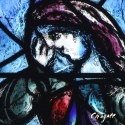
09.20.16 (Elul 17, 5776) Have you ever lost something very valuable only to later discover it "hiding in plain sight," in the most obvious place? And yet that is what tends to happen to each of us as time goes by: we lose sight of what is most important and get lost in trivialities... We forget the meaning and purpose of our existence, we begin to sleepwalk through our days, numb and in quiet despair... A key verse chanted in preparation for the new year (i.e., Rosh Hashanah) is: Hashivenu Adonai elekha ve'nashuvah: "Return us to you, O LORD, and we shall return," chadesh yamenu ke'kedem: "renew our days as of old" (Lam. 5:21). When we ask the LORD return us to Him, we are really asking him to help us wake up, to redirect our focus, and to enable us to engage in heartfelt self-examination by asking searching questions: "Who am I?" "How did I get here?" and so on. Teshuvah is a matter of "coming to yourself" and remembering the most important truths of life.
הֲשִׁיבֵנוּ יְהוָה אֵלֶיךָ וְנָשׁוּבָה
חַדֵּשׁ יָמֵינוּ כְּקֶדֶם
ha·shi·ve·nu · Adonai · e·ley·kha · ve·na·shu·vah,
cha·desh · ya·me·nu · ke·ke·dem

"Return us to you, O LORD, and we shall return;
renew our days as of old" (Lam. 5:21)
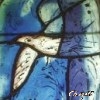
Hebrew Study Card
Relentless Blessings...

[ The following entry concerns this week's Torah reading, parashat Ki Tavo... ]
09.20.16 (Elul 17, 5776) From our Torah this week (Ki Tavo) we read: "And all these blessings shall come upon you and overtake you, if you hear (shema) the Voice of the LORD your God" (Deut. 28:2). The language here is unusual, as if these blessings would seize you like an army takes an enemy stronghold. The sages comment that God's blessings can "overtake" you in a way that may hide their true purpose for your good (Rom. 8:28). At such times we do not understand they are a concealed mercy (רַחֲמִים נִסְתָר) designed for our benefit. Therefore king David affirmed his confidence despite being surrounded by trouble. Where it is written, "Surely goodness and mercy shall follow me all the days of my life" (Psalm 23:6), the verb translated "shall follow me" (i.e., יִרְדְּפוּנִי) comes from a root word that means "to pursue," as a hunter chases after his prey. King David was sure that God's lovingkindness would "hound" him as he made his way through this world - even in the dark places, even in "the valley of the shadow of death" (בְּגֵיא צַלְמָוֶת) - where God's rod and staff would there comfort him and shepherd his way (Psalm 23:4). Amen... And "may your love, O LORD, be upon us, even as we hope in You."
יְהִי־חַסְדְּךָ יְהוָה עָלֵינוּ
כַּאֲשֶׁר יִחַלְנוּ לָךְ
ye·hi · chas·de·kha · Adonai · a·lei·nu
ka·a·sher · yi·chal·nu · lakh

"May your love, O LORD, be upon us,
even as we hope in You"
(Psalm 33:22)

Hebrew Study Card
Whatever the heart genuinely seeks, it will find. We are constantly "asking, seeking, and knocking" (Matt. 7:7), even if we are often unaware of our heart's search. The one who pursues righteousness will find it, just as evil will come to the one who searches after it (see Prov. 11:27). As it is written, "Those who worship worthless idols forsake the love (i.e., chesed: חֶסֶד) that could be theirs" (Jonah 2:8). David understood that as he pursued God, God's love would pursue him; as we seek, so we are sought by God; as we draw near to God, so He will draw near to us (James 4:8).
The prophet Hosea expresses hope: "Let us know; let us press on to know (i.e., נִרְדְּפָה, "pursue after") the LORD; His going out is sure as the dawn; He will come to us as the showers, as the spring rains that water the earth" (Hos. 6:3). May God help us pursue him be'khol levavkha - with all our heart - because He has promised, "You will seek me and find me, when you seek me with all your heart" (Jer. 29:13). And may the love of the LORD indeed be upon us, even as we put our hope in Him. Amen.
Worldly Afflictions...

[ The following entry concerns this week's Torah reading, parashat Ki Tavo.... ]
09.20.16 (Elul 17, 5776) From our Torah portion this week we read: "And the Egyptians mistreated and afflicted us..." (Deut. 26:6). The sages note that the word translated "they afflicted" (וַיָּרֵעוּ) could be translated either as "they made us bad (רַע)" or "they befriended us" (רֵעַ), though the two meanings may be related, since befriending the ideals and values of the world corrupts us so that we lose our identity and our spiritual sensitivity. As it is written, "whoever wishes to be a friend of the world makes himself an enemy of God" (James 4:4). Therefore we are admonished not to love this world and its rubbish: "If anyone loves the world, the love of the Father is not in him" (1 John 2:15).
Note: This verse gives us good reason to stand away from flag-waving crowds, political demagoguery expressed at "community" rallies, and all the other accouterments of mass culture... May God help us.
The Curse of the Law...

[ The following entry concerns this week's Torah reading, parashat Ki Tavo and the various curses of the law enumerated in the "tochechah." Please read the portion to find your place here. ]
09.20.16 (Elul 17, 5776) We are told that we must "receive" the life of Yeshua into our hearts, and that is certainly true, but we must also receive his death as well... This is the meaning of "taking up your cross." It is the death of Yeshua in your place that releases you from the curse of the law (מִקִּלְלַת הַתּוֹרָה), that is, spiritual death, as it says, "the Messiah redeemed us from the curse of the law by becoming a curse for us, for it is written, "Cursed is everyone who is hanged on a tree" (Gal. 3:13). By faith we "lay hands" on him and "lean into" his death, confessing our guilt and sin and receiving his sacrifice as offered up for our sake. Our sins are "transferred" to his account, and his righteousness is transferred to ours. This is the idea of our "justification," -- "just-if-i'd" never sinned, and "just-if-i'd" always obeyed... As it is written, "God made the One who did not know sin to be sin for us, so that we would become the righteousness of God (δικαιοσύνη θεοῦ) in Him" (2 Cor. 5:21). It is the righteousness of God, not our own. We receive the "death benefits" of Yeshua, who has bequeathed to us the great inheritance of everlasting life and heaven itself... Our identification with His death makes us "free from the law," not in the sense that we are free to sin, but rather free to live in a different order of relating to God, a new and a better covenant, whereby we are given power over sin and death. "I have been crucified with the Messiah: It is no longer I who live, but Messiah who lives in me. And the life I now live in the flesh I live by faith in the Son of God, who loved me and gave himself for me. I do not nullify the grace of God, for if righteousness came through the terms of the law, then Messiah died for no purpose" (Gal. 2:20-21). Trusting in Yeshua gives us "access by faith into grace" so that we are fully and forever accepted in God's Presence...
Note, however, that we are delivered from the curse of the law, but not from the law itself (Matt. 5:17-19). After all, the Torah, understood to refer to the will of the LORD our God, is written on our hearts by the power and agency of the Holy Spirit, the Spirit of Truth, in accordance with the promise of the New Covenant of God (Jer. 31:33). For more on this important topic, see the Ki Tavo article, "Death with Messiah."
The LORD our Mashgiach

[ The following is related to the month of Elul and the theme of teshuvah (repentance)... ]
09.20.16 (Elul 17, 5776) Avinu Malkeinu: "Our Father, Our King...." During the Season of Teshuvah, we make extra effort to remind ourselves of the kingship of the LORD and of our responsibility to live before his Presence in the truth, as his royal children. We remember that we are responsible to God for the gift of our lives, and that we shall render account for all we have done (Matt. 12:36-37). The Scriptures declare that each of us passes before the gaze of the Eternal, one by one, as it says: "The LORD looks down from heaven; he sees all the children of man; from where he sits enthroned he looks out on all the inhabitants of the earth, he who fashions the hearts of them all and observes all their deeds."
מִשָּׁמַיִם הִבִּיט יְהוָה רָאָה אֶת־כָּל־בְּנֵי הָאָדָם
מִמְּכוֹן־שִׁבְתּוֹ הִשְׁגִּיחַ אֶל כָּל־ישְׁבֵי הָאָרֶץ
הַיּצֵר יַחַד לִבָּם הַמֵּבִין אֶל־כָּל־מַעֲשֵׂיהֶם
mi·sha·ma·yim · hib·bit · Adonai · ra·ah · et · kol · be·nei · ha·a·dam
mi·me·khon · shiv·to · hish·gi·ah · el · kol · yo·she·vei · ha·a·retz
hai·yotz·er · ya·chad · lib·bam · ha·me·vin · el · kol · ma·a·sey·hem

"The LORD looks down from heaven; he sees all the children of man;
from where he sits enthroned he looks out on all the inhabitants of the earth,
he who fashions the hearts of them all and observes all their deeds"
(Psalm 33:13-15)

The LORD "looks down from heaven," not in some general way, but He "beholds" each person individually – he looks directly and personally upon each soul. God discerns each person's actions and inner intentions with perfect clarity; He completely comprehends every outcome of every action in the entire universe, simultaneously and in all possible states. The LORD is the Mashgiach (מַשְׁגִּיחַ), the personal Supervisor and Overseer of each human soul. And though our God truly is the great King over all, the Master of the Universe and Sovereign on High, his greatness reaches down to the lowest of depths, humbly appealing for any who are willing to turn to him, to choose life, to receive his love and grace.
Curse of Indifference...
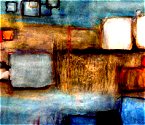
09.19.16 (Elul 16, 5776) From our Torah reading this week (Ki Tavo) it is written: "Cursed is anyone who does not uphold the words of this Torah to do them" (Deut. 27:26). The sages here note that the word "uphold" (יָקִים) means accepting the truth and validity of Torah perspective (i.e., hashkafah), not necessarily perfectly fulfilling all of the commandments. It is the one who denies the legitimacy of God's word, or claims that the commandments are no longer relevant, that is under the curse. The righteous may struggle and sometimes stumble, but they are never at peace with their sin and always seek to repent. Those who are careless – who willfully disregard God's truth – sin in defiance, and this leads to a life of eternal loss. We do not add or subtract from Torah, since that is to refashion God's word into our own image. And even if we should stumble and fail 100 times a day, we affirm the validity of God's truth and cherish it within our hearts. We must never justify compromise, mediocrity, and apathy into a spiritual ideology (Rev. 3:16).
God does not want our relationship with him to be trivial. Our hearts must be tested in "desert places" until they cry out, "You are my Lord; I have no good apart from you" (Psalm 16:2; Deut. 8:16). As Abraham Heschel said, "God is of no importance unless he is of supreme importance." There is simply no compromise on this point: We are to love the Lord with all our heart, with all our soul, and with all our strength...
קָדוֹשׁ קָדוֹשׁ קָדוֹשׁ יהוה צְבָאוֹת
מְלא כָל־הָאָרֶץ כְּבוֹדוֹ
ka·dosh ka·dosh ka·dosh, Adonai Tze·va·ot,
me·lo khol ha·a·retz ke·vo·do

"The steps of a good man are ordered by the LORD, and he favors his way.
Though he fall, he shall not be utterly cast down, for the LORD upholds his hand."
(Psalm 37:23-24)

A Covenant People...

09.19.16 (Elul 16, 5776) Our Torah this week (Ki Tavo) includes the following admonition: "Be silent and hear (הַסְכֵּת וּשְׁמַע), O Israel: this day you have become the people of the LORD your God" (Deut. 27:9). Here the sages note that "Israel" means more than a physical land with certain geographical boundaries, since Moses had said "this day" before the people had crossed the Jordan to enter the promised land itself. No, the existence and perpetuity of Israel is based on God's covenantal promises, not the vicissitudes of geopolitics and history. The Torah is the "portable homeland" of the people of God in all places... As it says further in our Torah reading: "These are the words of the covenant that the LORD commanded Moses to seal (לִכְרת) with the people of Israel" (Deut. 29:1).
"In Him you also, when you heard the word of truth, the gospel of your salvation, and believed in Him, were sealed with the promised Holy Spirit, who is the guarantee of our inheritance until we acquire possession of it, to the praise of his glory" (Eph. 1:13-14).
A Select Treasure...
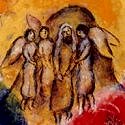
[ The following entry concerns this week's Torah reading, parashat Ki Tavo... ]
09.19.16 (Elul 16, 5776) From our Torah portion this week (i.e., Ki Tavo) we read: "You are a treasured possession ... a people holy to the LORD your God " (Deut. 26:18-19). Holiness, or kedushah (קְדוּשָׁה), represents transformation, being wholly set apart and turned toward the sacred, the Divine Presence. The LORD said to Moses from the midst of the shining flame: "Take off your sandals from your feet, for the place on which you stand is holy" (Exod. 3:5). The Chofetz Chaim comments: "By faith see that this place, right now, is holy ground, and awaits your response." Amen, and may we open our eyes to God's light:
קָדוֹשׁ קָדוֹשׁ קָדוֹשׁ יהוה צְבָאוֹת
מְלא כָל־הָאָרֶץ כְּבוֹדוֹ
ka·dosh ka·dosh ka·dosh, Adonai Tze·va·ot,
me·lo khol ha·a·retz ke·vo·do

"Holy, holy, holy is the LORD of hosts;
the whole earth is full of his glory!"
(Isa. 6:3)

Download Study Card
Spiritually speaking, the very first step is to find hope... The Divine Light is seen by means of the eye of faith (עַיִן שֶׁל אֱמוּנָה), as it is written, "Light dawns in the darkness for the upright; He is gracious, merciful, and righteous" (Psalm 112:4). Therefore we find life by trusting in God's Presence, even as we learn to see the invisible (2 Cor. 4:18; 5:7). "Trust in the LORD with all your heart, and do not lean on your own understanding. Know Him in all your ways, and He will straighten your paths. Be not wise in your own eyes; fear the LORD, and turn away from evil" (Prov. 3:5-7).
Remembering our future...

09.19.16 (Elul 16, 5776) Though we are optimistic about the purpose and end of reality, and though we believe that God "works all things together for good" (Rom. 8:28), we are not therefore "monistic idealists," that is, those who say that evil is not real or who claim that it is "part of God." We are given "exceedingly great and precious promises," yet in this world we suffer and experience pain, heartache, and troubles. Yeshua said "in this world you will have tribulation," though that is not the end of the story, of course, for there is the cheer of God's' victory, even if we must repeatedly ask God for grace to endure our troubles without murmuring (John 16:33; Heb. 4:16). I realize that is often difficult, and some of you might be within the fiery furnace even now. You might be asking, "Where are you, Lord, in all of this? Why don't you bring me out of these troubles?" In such testing you need endurance (ὑπομονή) to hold on to hope, remembering that God uses affliction to refine you for good. As Paul said, "We rejoice in our sufferings, knowing that suffering produces endurance, and endurance produces refined character, and refined character produces hope" (Rom. 5:3-4). Each of us is still upon the "Potter's wheel," and God's hand continues to shape us into vessels that one day will reveal his glory and honor. "May the LORD give strength to his people! May the LORD bless his people with peace" (Psalm 29:11).
יְהוָה עז לְעַמּוֹ יִתֵּן
יְהוָה יְבָרֵךְ אֶת־עַמּוֹ בַשָּׁלוֹם
Adonai · oz · le·am·mo · yit·ten
Adonai · ye·va·rekh · et · am·mo · va·sha·lom

"The LORD will give strength to his people;
The LORD will bless his people with peace."
(Psalm 29:11)

Hebrew Study Card
Keep holding on, dear friends! The Lord our God is faithful and true. He gives us acharit ve'tikvah (אַחֲרִית וְתִקְוָה), "a future and a hope" (Jer. 29:11).
The Anniversary of Creation...

[ Note that Elul 25 begins this coming Tuesday, September 22nd at sundown.... ]
09.18.16 (Elul 15, 5776) Popular Judaism regards Rosh Hashanah as the date of the Creation of the universe by God (Talmud: Rosh Hashanah 27a), but the Midrash (rightly) notes that it occurred six days earlier, on the 25th of Elul, when God created the Divine light yesh me'ayin by saying, "Let there be light" (Gen. 1:3-5). This is called ma'asei bereshit (מַעֲשֵׂה-בְּרִאשִׁית), the very first work of creation, which is the revelation of His Word: "And God said..." Indeed, the first "red letters" of the Scriptures pertain the Divine Light of God:
וַיּאמֶר אֱלהִים יְהִי אוֹר וַיְהִי־אוֹר
vai·yo·mer · E·lo·him · ye·hi · ohr · vai·hi · ohr

And God said, "Let there be light," and there was light.
(Gen. 1:3)

Note: For more on this subject, see "Teshuvah and Creation."
Parashat Ki Tavo - כי־תבוא

09.18.16 (Elul 15, 5776) Our Torah portion this week (Ki Tavo) includes Moses' seemingly endless description of terrible consequences that would befall the Jewish people if they disobeyed the terms of the Sinai covenant (Deut. 28:15-68). In Jewish tradition this litany of woe is called the "tochachah" (תּוֹכָחָה), a word that means "rebuke" or "reprimand." Reading the tochachah is difficult and painful, though it serves as a bitter medicine to wake us up and prevent us from falling into a lethal coma. In that sense the tochechah may be regarded as a great blessing, since it shocks us into experiencing the gravity of God's grace. This is similar to Yeshua's grave warnings about the dangers of hell. If we refuse to listen or rush past his words, we are missing the substance of God's lament given through the Hebrew prophets. Sin is a lethal problem, and we must turn to God for healing or we will die. As Blaise Pascal once wrote, "Between heaven and hell is only this life, which is the most fragile thing in the world." Therefore shuvah! -- turn to God and receive the blessing of life!
Selichot Services

09.18.16 (Elul 15, 5776) The Hebrew word selichah (סְלִיחָה) colloquially means "forgiveness," though in the Hebrew Scriptures it refers exclusively to God's offer of pardon and forgiveness of the repentant sinner. For instance, in Psalm 130:4 we read, "But with you there is forgiveness (selichah), that you may be feared" (כִּי־עִמְּךָ הַסְּלִיחָה לְמַעַן תִּוָּרֵא).
The plural form of the word selichah is selichot (סְלִיחוֹת), a word traditionally used to refer to additional prayers for forgiveness recited during the month of Elul (through Yom Kippur). These prayers and poems for mercy are usually recited before dawn, before the daily shacharit (morning) service (you can obtain a Selichot prayerbook at any good Jewish bookstore). The list of the Thirteen Attributes of God's Mercy (Shelosh Esrei Middot shel Rachamim) are the primary focus of the prayers, based on the Talmud's statement that, "Whenever the nation of Israel sins, let them pray this prayer (i.e., the Thirteen Attributes) and I shall forgive them" (Rosh Hashanah 17b). In general, Selichot services are intended to guide us toward an examination of our lives and to undergo teshuvah.
 |
In Sephardic tradition, Selichot services begin at the start of Elul and run until Yom Kippur (similar to the 40 days Moses spent on Mount Sinai), though in the Ashkenazic tradition they are recited late (i.e., midnight) on the Saturday night prior to Rosh Hashanah. Some of the prayers and music for the Selichot service are taken from the services for Rosh Hashanah and Yom Kippur, providing a transition between the "old year" and the New Year. A Chassidic tradition holds that the last twelve days of the year (i.e., Elul 18 to 29) correspond to the twelve months of the closing year: on each of these twelve days, the pentitent should review the deeds and achievements of its corresponding month.
Shabbat Kumi Ori - קוּמִי אוֹרִי

[ The following entry concerns this week's Torah reading, parashat Ki Tavo... ]
09.18.16 (Elul 15, 5776) The haftarah for parashat Ki Tavo (i.e., Isa. 60:1-22) is the sixth of the seven readings from the prophets that are consecutively read before Rosh Hashanah. These "haftarot of comfort" foretell of the restoration of the Jewish people and of the coming of the Messianic Era. In this week's reading, the future salvation of the nation of Israel is described. The LORD promises to shine His glorious light upon the Jewish people and to reveal His glory, despite the hour of darkness and tribulation that comes upon the earth:
"Arise and shine (קוּמִי אוֹרִי) for your light has come, and the glory of the LORD (כְּבוֹד יהוה) has risen upon you. For behold, darkness shall cover the earth, and thick darkness the peoples; but the LORD will shine upon you (וְעָלַיִךְ יִזְרַח יהוה), and his glory will be seen upon you (וּכְבוֹדוֹ עָלַיִךְ יֵרָאֶה). And nations shall come to your light, and kings to the brightness of your rising. Lift up your eyes all around, and see; they all gather together, they come to you; your sons shall come from afar, and your daughters shall be carried on the hip" (Isa. 60:1-4).
Sometime during the "plague of darkness" that represents the time of the Great Tribulation (i.e., the Day of the LORD and the judgment of the world, or Yom Adonai), Israel will finally turn to the LORD and receive Yeshua as their long-lost Messiah (Zech. 12:10). The veil will finally be taken away, and "all Israel will be saved" (Rom. 11:26). The Light of Salvation (Yeshua) will be revealed and the glory of the LORD (כְּבוֹד יהוה) will radiantly shine (זָרָח) upon the Jewish people. The land of Israel will be like Goshen during the times of the plagues of Egypt as the world powers are all judged and destroyed. Then the survivors of the nations will understand that the LORD is indeed with Israel and will turn to Him in surrender as well. "And the glory of the LORD shall be revealed, and all flesh shall see it together, for the mouth of the LORD has spoken" (Isa. 40:5). Yeshua will return to Zion to establish the Kingdom of God upon the earth (Zech. 2:10-13).
קוּמִי אוֹרִי כִּי בָא אוֹרֵךְ
וּכְבוֹד יְהוָה עָלַיִךְ זָרָח
ku·mi o·ri ki va or·rekh
ukh·vod Adonai a·la·yikh za·rach

"Arise, shine, for your light has come,
and the glory of the LORD has risen upon you."
(Isa. 60:1)

Hebrew Study Card
The Very First Step...

09.16.16 (Elul 13, 5776) There is a core element of your spiritual life that is all-determinative, that affects everything else, and that is the decision of whether you will choose to "show up," whether you will engage it's hope; and whether you will open your eyes and yield yourself to the light... And this is an ongoing decision. Therefore we read in the Torah: "If you walk in my statutes (אִם־בְּחֻקּתַי תֵּלֵכוּ) and observe my commandments and do them..." (Lev. 26:3). The sages note that unlike the holy angels, we must "walk out" the faith of our days, and therefore we are always moving either forward or backward. God's sun shines on the just and unjust alike (Matt. 5:45). Every human being lives by faith of some kind, and it is therefore impossible to opt out of the decision to "choose this day whom we shall serve" (Josh. 24:15). Indifference or apathy is as much a spiritual decision as is outright rebellion, and if we do nothing today to draw us near to the Lord, we will eventually regress and slip backward. This is all very sobering. "No one knows the day or hour," and that's why it is so vital to turn to God and be healed while there is still time. So turn today and bacharta ba'chayim (בָּחַרְתָּ בַּחַיִּים) - "choose life!" "For this commandment (of turning to God) is not hidden from you, and it is not far away... No, the matter is very near you - in your mouth and your heart - to do it" (Deut. 30:11-14; Rom. 10:8-13).
Shabbat shalom and love to you all... Thank you for being part of Hebrew for Christians!
Lessons in Waste Places...

09.16.16 (Elul 13, 5776) How much energy is wasted going backward, returning to the same empty places? Yet we are creatures of habit; we tend to be lazy and we avoid examining our convictions and underlying assumptions; we are apt to ignore or explain way evidence that might challenge us, or - if we can no longer avoid the truth - we procrastinate and later "forget" the resolve to turn our heart to God in the truth. This way we can "hear" a commandment and yet postpone our action until later; we can agree to follow Messiah, but only in our own terms. Like Augustine, we pray: "Grant me chastity and continence -- only not yet..." And so we are turned back to emptiness because we refuse to go forward.
"We like to continue to believe what we have been accustomed to accept as true, and the resentment aroused when doubt is cast upon any of our assumptions leads us to seek every manner of excuse for clinging to them. The result is that most of our so-called reasoning consists in finding arguments for going on believing as we already do." - James Harvey Robinson (1863-1936)
Between bondage and the promised land lies the desert - a transitional place where we learn to depend on God's sustenance alone to bring us through... The "desert experience" can help liberate the soul from its past slavery, or it can reveal that the soul really does not want to be free. Hardship and testing reveal to us what we really believe, after all. It's one thing to be set free from what has once enslaved you, but it is quite another thing to live as a free person, conscious of your own liberty and dignity as a beloved child of God. And yet we are warned that if we don't turn away from what has enslaved us in the first place, if we don't learn to truly see ourselves as a new creation (בְּרִיאָה חֲדָשָׁה), it is likely we will be led back to a place of slavery once again.
Be encouraged, friends. If you feel lost in the desert, remember that it was there that God revealed himself to broken Moses... As it is written, "Who among you fears the LORD and obeys the voice of his servant? Let him who walks in darkness and has no light trust in the name of the LORD and rely on his God" (Isa. 50:10). Yeshua is our Good Shepherd who promises to guide our way to the high country of Zion (Psalm 23; John 10:14-16).
The Purging Process...

09.16.16 (Elul 13, 5776) "I am the true vine, and my Father is the vinedresser. Every branch in me that does not bear fruit he takes away, and every branch that does bear fruit He purges (καθαίρει), that it may bear more fruit" (John 15:1-2). If you bear fruit you will experience the "purging process," and that means suffering affliction... This might seem to you backward: Why does the fruitful branch need to be cut back? Indeed, the promise of suffering is not meant for an evil person, but for the righteous soul who trusts in God. Purging is painful but it is also purifying, yielding new growth within our hearts. Yeshua taught, "Blessed are the pure in heart, for they shall see God" (Matt. 5:8). The Greek word translated "pure" is katharos (καθαρός), sometimes used describe the cleansing of a wound (catharsis), or to describe the unalloyed quality of a substance revealed through refining fire. We "rejoice" in testing because that is the way of real growth, sustained hope, and the revelation of God's deep love (Rom. 5:3-4). In our afflictions we are given heavenly consolation that helps us to persevere (2 Cor. 1:3-5). We are being weaned from this present age to be made ready for heavenly glory, for things unimaginably wonderful, soon to be revealed to you. Chazak – stay strong in the Lord, friends.
טוֹב־לִי כִי־עֻנֵּיתִי לְמַעַן אֶלְמַד חֻקֶּיך
tov li khi-u·nei·ti, le·ma·an el·mad chu·ke·kha

"It is good for me that I was afflicted,
that I might learn your decrees." (Psalm 119:71)

Note that the Hebrew word translated "I was afflicted" in this verse (עֻנֵּיתִי) comes from the verb anah (עָנָה), which also means to "answer." It is a great blessing when God answers the call of your heart by giving you opportunity to overcome trouble by means of his grace... Thank God for the blessing of being made needy for Him!
"Imagine hidden in a simpler exterior a secret receptacle wherein the most precious treasure is deposited - there is a spring which has to be pressed, but the spring is hidden, and the pressure must have a certain strength, so that an accidental pressure would not be sufficient. So likewise is the hope of eternity hidden in man's inmost parts, and affliction is the pressure. When it presses the hidden spring, and strongly enough, then the contents appear in all their glory." - Kierkegaard (C. Discourses)
How to do Teshuvah...

09.16.16 (Elul 13, 5776) We learn teshuvah by doing teshuvah... 'A man once approached Israel of Rizhin and said to him, 'Rebbe, I so wish to repent, but I don't know what to do.' 'And to sin, you knew what to do?' 'Yes, but that was easy. First I sinned, then I knew.' 'Exactly. Now do the same the other way around. Start by repenting; you'll know later.' As Yeshua said, "If anyone wants to do God's will, he will know..." (John 7:17).
The same is true about all the mo'edim (i.e., holidays). For instance, you learn about Passover by actively participating in a Seder, not just reading about it in a book... We know something with our whole heart when we engage our senses, our bodies, etc. through our participation, by making it "our own." The life of faith is not a "spectator sport." As Soren Kierkegaard said, "The highest and most beautiful things in life are not to be heard about, nor read about, nor seen but, if one will, are to be lived... A road well begun is the battle half won. The important thing is to make a beginning and get under way."
It is often not what we see that matters, but what we don't see, what we overlook... We see our sin, our inability, our brokenness, but we overlook compassion, power, and healing from heaven. We must learn to see the "white spaces" between the letters, to train ourselves to see the good in every circumstance (even our struggle), to cultivate inner vision and awareness. Teshuvah means changing not only our thinking, but fixing our heart's attitude by bringing love, joy, and peace to our experience. In this way, re-learning to see is not unlike "getting down on your knees" within yourself as you encounter the world around you. It is a way to "practice the presence" of Messiah at all times...
Teshvuah of Wisdom....
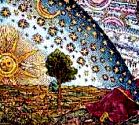
[ The following is related to the month of Elul and the theme of teshuvah (repentance)... ]
09.16.16 (Elul 13, 5776) Moses prayed to God: "teach us to number our days," that is, help us understand how to make our days count for eternity, to have a weight of glory that will shine in the world to come... The sages say on the day of death, one considers one's life as if it had been a single day. Life goes by so quickly, and we never know when our personal Rosh Hashanah will come. "No one knows the day or hour..." That's why it is so vital to be healed and to turn to God while there is still time. So turn to him today and bacharta ba'chayim – "choose life!" "For this commandment (of turning to God in teshuvah) is not hidden from you, and it is not far away. It is not in heaven... nor across the sea.... Rather, the matter is very near you - in your mouth and your heart - to do it" (Deut. 30:11-14; cp. Rom. 10:8-13).
לִמְנוֹת יָמֵינוּ כֵּן הוֹדַע
וְנָבִא לְבַב חָכְמָה
lim·not · ya·me·nu · ken · ho·da
ve·na·vi · le·vav · chokh·mah

"Teach us to number our days
that we may get a heart of wisdom."
(Psalm 90:12)

Hebrew Study Card
Despite the frailty and brevity of our days, may it please God to shine the power of His radiance upon us and to establish our works for His praise. May He help us to "number our days" so that we may obtain levav chokhmah (לְבַב חָכְמָה) - a heart of wisdom to live according to His will (James 1:5). Above all else, may the "God of our Lord Yeshua the Messiah, the Father of Glory (אֲבִי הַכָּבוֹד), impart to you a spirit of wisdom and of revelation in the knowledge of Him, having the "eyes of your hearts" (ὀφθαλμοὺς τῆς καρδίας) enlightened, that you may know what is the hope to which he has called you" (Eph. 1:17-18). May you be strong, resolute, and fully focused on our LORD, chaverim. Amen.
Teshuvah and Seeking...

[ The following is related to the month of Elul and the theme of teshuvah (repentance)... ]
09.15.16 (Elul 12, 5776) As I've mentioned before, the Hebrew word for "world" or "age" is olam (עוֹלָם), which is derived from a root verb (עָלַם) that means "to conceal" or "to hide." God "hides" His face from us so that we will seek Him, and that means pressing through ambiguity of this world to discern and take hold of the truth. Therefore King David said, בַּקְּשׁוּ פָנָיו תָּמִיד/ bakeshu fanav tamid: "Seek His face continually" (Psalm 105:4). Note that the Hebrew gematria (numerical value) for the word "fanav" (i.e., "His face") is the same as that for the word "olam." When we truly seek God's face (i.e., His Presence), that is, "do teshuvah," we are able to discern the underlying purpose for our lives in this age... As it is written in our Scriptures: "Blessed is the one who endures temptation, for when he is tried, he shall receive the crown of life (עֲטֶרֶת הַחַיִּים) that the LORD has promised to those who love him" (James 1:12). The present age, then, constitutes a test that God providentially designs to lead us to the "crown of life," and we are made happy when we go through its fires and are not consumed. Indeed, only those who love the Lord will be able to withstand the fires... The "crown of life" symbolizes that we have truly received the purpose for which we were created and that we are identified with God's own passion and love. The light of the crown represents the Divine Presence within us, Life that overcomes despair on our behalf.
דִּרְשׁוּ יְהוָה וְעֻזּוֹ
בַּקְּשׁוּ פָנָיו תָּמִיד
dir·shu · Adonai · ve·u·zo
ba·ke·shu · fa·nav · ta·mid

"Seek the LORD and his strength;
seek his presence continually."
(Psalm 105:4)

Hebrew Study Card
"It is not the path which is the difficulty; rather, it is the difficulty which is the path." The ancient Greek version of the Torah (i.e., the Septuagint) translates this verse, "Seek the LORD and be strengthed; seek His face through everything (διὰ παντός)." The LORD God gives us "inner strength" (i.e., ἐγκράτεια, from εν-, "in" + κράτος, "strength" or "power") when we yield to "the power of His might" (ἐν τῷ κράτει τῆς ἰσχύος αὐτοῦ) (Gal. 5:22-23; Eph. 6:10). Therefore we must remember God's power and glory, for "He is the LORD our God (הוּא יְהוָה אֱלהֵינוּ); His judgments are in all the earth" (Psalm 105:7).
Our Daily Teshuvah...

[ The following is related to the High Holidays and the "Season of Repentance"... ]
09.15.16 (Elul 12, 5776) Teshuvah ("repentance") is described as "turning" to God, though practically speaking it is a repeated turning, that is, a turning to God in the moment of ambiguity, pain, distress... It is in the midst of the ego's clamor, before the parade of worldly desire or pressure, in the crucible of "everydayness" that we must "come to ourselves" and find true wonder. In that sense, teshuvah is a sort of focus, a direction, a seeking, and a center of life, the place of constant repair for the inner breach we constantly feel.
The question may be asked, however, whether you really want God - the Living God - to be intimately present in your life. "Repentance means unlearning all the self-conceit and self-will that we have been training ourselves into... It means killing part of yourself, undergoing a kind of death" (C.S. Lewis). Indeed, "nothing is more certain: coming close to God brings certain catastrophe [to the ego]. Everyone whose life does not bring relative catastrophe has never even once turned as a single individual to God; it is just as impossible as it is to touch the conductors of a generator without getting a shock" (Soren Kierkegaard).
The sages advise: Repent one day before you die... "In eternity you will not be asked how large a fortune you are leaving behind - the survivors ask about that. Nor will you be asked about how many battles you won, about how sagacious you were, how powerful your influence - that, after all, becomes your reputation for posterity. No, eternity will not ask about what worldly goods remain behind you, but about what riches you have gathered in heaven. It will ask you about how often you have conquered your own thought, about what control you have exercised over yourself or whether you have been a slave, about how often you have mastered yourself in self-denial or whether you have never done so" (Kierkegaard).
Just as God humbled Israel with manna in the desert, so He humbles us. "Give us this day our daily bread and deliver us..." The purpose of affliction is ultimately good and healing: God humbles us with manna, the "bread of affliction, so "that he might make you know that man does not live by bread alone, but man lives by every word that comes from the mouth of the LORD" (Deut. 8:3). In other words, God uses tzuris to lead us to do teshuvah and accept the truth. We often pray that our problems be taken away, but God sometimes ordains these very problems so that we will turn and draw near to Him... We are being weaned from this present age to be made ready for heavenly glory, for things unimaginably wonderful, soon to be revealed to you. Chazak – stay strong in the Lord, friends.
The Law of Faith...
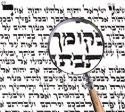
09.15.16 (Elul 12, 5776) This week's Torah reading, parashat Ki Teitzei, contains more commandments than any other in the Torah of Moses.... When asked how many commandments are in the Torah, however, most Jews will answer 613, based on Jewish tradition (the number 613 is sometimes called "taryag" (תריג), an abbreviation for the letters Tav (400) + Resh (200) + Yod (10) + Gimmel (3) = 613). Despite several attempts made over the centuries, however, there has never been a definitive list of these commandments, and of those who tried to compile such, no two agree... Some say the number 613 comes from a fanciful midrash that teaches that since there are 365 days in a year (corresponding to the 365 negative commandments) and 248 "parts" of the body (corresponding to the positive commandments), each day we should use our body to serve God. Regardless of the exact count, however, the Talmud followed the Apostle Paul by understanding all the Torah's commandments to be derived from the Ten Commandments given at Sinai, the most basic of which is the very First Commandment, namely, "I AM the LORD your God (אָנכִי יְהוָה אֱלהֶיךָ) who brought you out of Egypt, out of the house of slavery" (Exod. 20:2). This foundational commandment was later restated by the prophet Habbakuk as: וְצַדִּיק בֶּאֱמוּנָתוֹ יִחְיֶה / "The righteous person will live by faith in God" (Hab. 2:4; Gal. 3:11; Heb. 10:38).
"Most people believe that the Christian commandments are intentionally a little too severe..." - Kierkegaard
Note: I stated that the sages of the Talmud "followed" the Apostle Paul's line of thinking on this subject since Paul wrote centuries before the Talmud was compiled...
Fighting Spiritual Blindness...
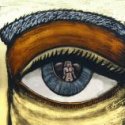
[ The following entry concerns this week's Torah reading, parashat Ki Teitzei.... ]
09.14.16 (Elul 11, 5776) Our Torah portion this week (Ki Teitzei) commands us to remember what the Amalekites did to the Jewish people just after they left Egypt during the time of the Exodus (Exod. 17:8-16; Deut. 25:17-19). Paradoxically God commanded the Israelites to "blot out the remembrance" of Amalek while swearing to fight Amalek "from generation to generation" (Deut. 17:16). In this connection note that the name "Amalek" (עֲמָלֵק) begins with the letter Ayin (symbolizing the eye) and equals 240 in gematria -- the same value for safek (סָפֵק), the Hebrew word for doubt. Amalek therefore symbolizes "the eye of doubt," or even "the severed eye" (the Hebrew verb מָלָק means "to chop" or "sever" in reference to the "eye" of Ayin). The power of Amalek therefore represents spiritual blindness as it acts in the world. We are never to forget that the light of God overcomes the darkness of this world, and that light is found in Yeshua our LORD....
Note: For more on this important topic, see "Warfare with Amalek."
Life from the Dead...

09.14.16 (Elul 11, 5776) Repentance means that we believe that the kindness of God can give life to our dead hearts. Repentance is therefore first of all a matter of faith, of believing in the miracle of God. And though it is a great gift from heaven, repentance requires honesty and acknowledgment of the truth. We must confess our inner poverty, our neediness, and mourn over the loss and hurt caused by our sin. Repentance turns away from our attempts to defend or justify ourselves and instead turns to God to heal our separation from Him (Rom. 8:3-4). Teshuvah buries our old nature by being made into a new creation.
It is no small thing to believe the message of Yeshua, and indeed, it involves a passionate inwardness that scandalizes the rational mind. Our father Abraham is extolled as the model of righteous faith, but he was tested to sacrifice the moral law (e.g., "thou shalt not murder") when he lifted up the knife to slay his beloved son Isaac. Faith requires you to change your everyday thinking, to go beyond natural expectations, to "walk on water." In the case of Yeshua, we are confronted with the "Absolute Paradox," namely, the God-Man, the Infinite-made-Finite, the Holy-made-Profane, the Sinless-made-Sin, who says to you: "I AM the resurrection and the life. Whoever believes in me, though he die, yet shall he live, and everyone who lives and believes in me shall never die. Do you believe this?" (John 11:25-26). You will never die; you will never hunger; you are made whole through my brokenness; you will be cleansed by my defilement, and so on. It's not just hard to believe, it's impossible, which is why it is a miracle of God to be saved (Matt. 19:26). "It is the Spirit that gives life; the flesh is no help at all" (John 6:33). The difference is Yeshua: Salvation is of the LORD. We are enabled to love and know God by means of his inner life and spirit, not by means of good intentions or religious zeal. Faith itself is a miracle, the power of God....
Some people imagine spirituality as a climb upward, an "ascent of the soul" that aims to reach God through the performance of good deeds or religious rituals. But God does not say "at the end of the way you will find me," but rather, "I AM the way, the very road under your feet, the Place (הַמָּקוֹם) where you are, the Bridge to the Father (John 14:6). "For all things come from You (כִּי־מִמְּךָ הַכּל), and from your hand we give to you" (1 Chron. 29:14). The LORD is Present in every "here" and every "now," the Source of all we are. And no matter what our circumstances, we will find God if we search "bekhol levavkha" - with all our being, as it is written: "You will seek me and find me, when you seek me with all your heart."
"God creates everything out of nothing. And everything which God is to use, he first reduces to nothing." - Kierkegaard
The principle of the self-life, the ego, religious observance, "doing the law," etc., is a spiritual dead-end because we are without life, without power (John 6:63). The word is this: God gives strength to the weary, to the faint, to those who are without potency or power. But this means that we first must be emptied, broken, and stripped of our self-sufficiency before the strength of God is manifest in us: "My power is made perfect (τελειοῦται) in weakness" (2 Cor. 12:9). None of this flatters the ego. God's way is first to break us, to make us weaker and weaker, so that he can then fill us with the miraculous divine nature. Like all sacrifices that were brought to the altar, we must pass through death to life by means of our union with the Messiah at the cross... It is only after the cross that it may be said, "It is no longer 'I' who lives; now it is Messiah who lives His life in me" (Gal. 2:20). There is indeed strength, power, and victory – but such comes after the cross, after we reckon carnal energy as useless. "Not by might, nor by power, but by My Spirit," says Adonai Tzeva'ot (Zech. 4:6).
Teshuvah and Truth...

[ The following is related to the month of Elul and the theme of teshuvah (repentance)... ]
09.13.16 (Elul 10, 5776) In the New Testament, the Greek word metanoia (and its related verb, metanao) is the most commonly used word to express the idea of "repentance." The compound word is formed from 'μετα' (after, with) and 'νοεω' (to think) and generally means "changing your mind" (in the noun form) or "thinking differently" (in the verb form). Since it can also represent an "afterthought" expressed emotionally as disappointment over a loss of some kind, metanoia is similar to the idea of nacham (נָחַם) in the Hebrew Scriptures, which literally means to "sigh" as a way of expressing regret or consolation. The Greek word strepho (στρέφω), like the Hebrew word shuv (שׁוּב), means to "return" to God in a practical sense, that is, by performing acts of contrition. In either case, however, a change of direction is implied, and that change ultimately begins with how we think and what we regard as truth. Repentance, then, involves a new vision, a new way of seeing reality...
Yeshua's earthly ministry began with the message, "The time has come and the kingdom of God draws near: repent (μετανοεῖτε) and believe (πιστεύετε) the good news" (Mark 1:15). These two verbs (repent, believe) are in the imperative mood. We are commanded to repent, to "change our thinking," and to turn away from hopelessness - and the sin that hopelessness begets - by accepting God's intervention and deliverance. But you cannot believe if you do not first turn, and therefore you must change your focus: clear away the world's distractions and ready your heart to hear the message. It is in the desert places that we "prepare the way of the Lord and make straight a highway for our God."
קוֹל קוֹרֵא בַּמִּדְבָּר פַּנּוּ דֶּרֶךְ יְהוָה
יַשְּׁרוּ בָּעֲרָבָה מְסִלָּה לֵאלהֵינוּ
kol · ko·rei · ba·mid·bar · pa·nu · de·rekh · Adonai
ya·she·ru · ba·a·ra·vah · me·sil·lah · le·lo·hei·nu

A voice cries out: 'In the desert prepare the way of the LORD;
make straight in the steppes a highway for our God.'
(Isa. 40:3)

Note that the word translated "prepare" (i.e., panu) comes from a root word (פָּנָה) that means to turn to face someone... The Hebrew word panim (פָּנִים), "face," comes from the same root, as does the word penimi (פְּנִימִי), "inner," and the word penimiyut (פְּנִימִיוּת), meaning "inwardness" or "immanency." This suggests that we must go within our own hearts, and there, in our "desert places," we will encounter the Presence of the LORD. It is in the solitude of the desert - away from the noise and distractions of this vain world, where we can focus our heart, confess our sin, and express our great need for God... Being honest with ourselves makes us yashar (יָשַׁר), and crooked ways are made straight for God to be received... The Hebrew word mesilah (מְסִלָּה) alludes to the ladder (i.e., sullam: סֻלָּם) that Jacob saw in the desert when he received the blessing of God (Gen. 28:12). Yeshua is the Bridge, or Ladder (הַסֻּלָּם), that unites and mediates heaven and earth (John 1:51).
Since God holds us responsible to repent and believe the truth of the gospel (Acts 17:30-31), He must have made it possible for us to do so ("ought" implies "can"). And indeed, God has created us in His image so that we are able to discern spiritual truth. He created us with a logical sense (rationality) as well as a moral sense (conscience) so that we can apprehend order and find meaning in the universe He created. All our knowledge presupposes this. Whenever we experience anything through our senses, for example, we use logic to categorize and generalize from the particular to the general, and whenever we make deductions in our thinking (comparing terms, making inferences, and so on), we rely on logic. We have an innate intellectual and moral "compass" that points us to God.
Because we all necessarily must think in order to live, we should value clear thinking. This should be obvious enough, though people often make various errors and misjudgments because they devalue the effort required to carefully think through a question. As William James once said, "A great many people think they are thinking when they are merely rearranging their prejudices." When it comes to questions about the gospel, however, God regards such carelessness to be blameworthy. Again, the LORD holds us accountable for what we think and believe, especially when it comes to the reality and mission of His Son.
"Truth has always had many loud proclaimers, but the question is whether a person will in the deepest sense acknowledge the truth, allow it to permeate his whole being, accept all its consequences, and not have an emergency hiding place for himself and a Judas kiss for the consequence." - Soren Kierkegaard (1813-1855)
The truth about God is always available to human beings, if they are willing to look for it. The Divine Light that was created before the sun and the stars represents God's immanent presence that "lights up" all of creation - including our minds (Gen. 1:3). As Paul stated, "the invisible things of Him from the creation of the world are clearly seen so that people are without excuse" (Rom. 1:19-20). The heavens are constantly attesting to the reality of God's handiwork (Psalm 19:1). All of creation "shouts out" that there is a God. Even small children understand this.
Note: People perish because "they refuse to love the truth and so be saved" (2 Thess. 2:10-12). Therefore the issue of truth - physical, moral, aesthetic, spiritual, etc. - is central to salvation itself. For more on this subject, see "Teshuvah of the Mind."
Teshuvah of Concern...

[ The following is related to the month of Elul and the theme of teshuvah (repentance)... ]
09.13.16 (Elul 10, 5776) Blaise Pascal wrote that faith in Yeshua is essentially a confession of irreparable human infirmity, and therefore its message is always directly there - to the place of our pain and desperation. Consequently it has no voice or message to mere triflers - to those who might patronize it as philosophically interesting, morally edifying, poetically beautiful, politically useful, and so on. No, no, never: the Spirit speaks to the heart in its anguish, in its lament over the suffering and agony of life in this world, and there breathes out the haunting question, "Do you want to be healed?"
עָקב הַלֵּב מִכּל וְאָנֻשׁ הוּא
מִי יֵדָעֶנּוּ
a·kov · ha·lev · mik·kol · ve·a·nush · hu
mi · ye·da·en·nu

"The heart is deceitful above all things, and incurably sick;
who can understand it?"
(Jer. 17:9)

Though our faith can be expressed in theological terms, it remains first of all a message to the individual in existential distress, shouting the way of escape to those on the edge of the everlasting abyss... The language of genuine teshuvah is one of ultimate concern, a message that appeals to matters of life and death itself.
"A life of a human being begins with the illusion that a long, long time and a whole world lie before him in the distance, begins with the foolhardy delusion that he has such ample time for his many claims. The poet is the eloquent and enthusiastic confidant of this foolhardy but beautiful delusion. But when a person in the infinite transformation discovers the eternal itself so close to life that there is not the distance of one single claim, of one single evasion, of one single excuse, of one single moment of time from what he in this instant, in this second, in this holy moment shall do - then he is on the way..." (Kierkegaard: Works of Love)
Restoring what is Lost...

[ The following entry concerns this week's Torah reading, parashat Ki Teitzei.... ]
09.13.16 (Elul 10, 5776) "Do not ignore the loss of your brother... you shall restore it to him" (Deut. 22:1-3). The Torah states that it is a moral duty to return lost items to others, and on a spiritual level that includes restoring honor and dignity to those who have lost sight of their value in the eyes of God... For even greater reason we must make restitution to those whom we have harmed. Making amends is part of the teshuvah process. We hurt ourselves when we hurt others, and we hurt others when we hurt ourselves. The way out of that circle is through making amends. As Yeshua taught: "If you are offering your gift at the altar and there remember that your brother has something against you, leave your gift there before the altar and go. First be reconciled to your brother, and then come and offer your gift" (Matt. 5:22-23). "Therefore, confess your sins to one another and pray for one another, that you may be healed. The prayer of a righteous person has great power as it is working" (James 5:16). Ultimately, confession of the truth is not optional for anyone.
Indeed, regarding the duty to restore what is lost to our brother mentioned above, the Torah adds, "and you are not to ignore it," which in the Hebrew literally reads, "you are unable to hide it" (לא תוּכַל לְהִתְעַלֵּם). Rabbi Abraham Twerski notes that the Torah is not giving us a command as much as stating a fact: You are unable to hide from a wrongful act. In other words, the problem with "getting away with it" is that you get away with it, that is, you take it with you. Such self-deception sears your conscience, makes you numb inside, and deadens the heart. Making amends to others is life-giving, helping you let go of what you've done wrong to restore inner peace. We must be vigilant not to let our hearts die because of either shame or rationalization. May the LORD help us walk in the Spirit of Truth.
Teshuvah of Mercy...
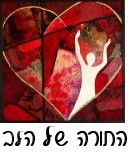
[ The following is related to the month of Elul and the theme of teshuvah (repentance)... ]
09.12.16 (Elul 9, 5776) It's been said that grace is getting what you don't deserve, whereas mercy is not getting what you do... Yeshua said, "Blessed are the merciful, for they shall receive mercy" (Matt. 5:7). This is not a reciprocal law like karma, i.e., you get in return what you first give, since we cannot obtain God's mercy as reward for our own supposed merit (Rom. 4:4). No, we are able to extend mercy to others when we are made merciful ("full of mercy"), that is, when we first receive mercy from God. After all, you can't give away what you don't have, and if we have no mercy for others, it is likely that we have not received it ourselves, as the parable of the Good Samaritan reveals (Luke 10:25-8). Your forgiveness is your forgiveness: as you forgive, so you reveal your heart. What you do comes from what you are, not the other way around. We are first transformed by God's grace and then come works of love. We are able to judge others mercifully, with the "good eye," because we come to believe that we are beloved by God.
The pattern therefore abides: First you realize you are broken, impoverished of heart, and you therefore mourn over your sinful condition. Then you hunger and thirst for God's righteousness, for his healing and deliverance, and you learn to trust the mercy of God, that is, you come to accept that you are accepted despite your unacceptability. You begin to show yourself mercy; you learn to "suffer yourself" and forgive your own evil, and then you extend this mercy to others who are hurting around you... The failure to extend mercy, to demand your "rights" or hold on to grudges, implies that you are relating to God as Judge rather than as Savior (James 2:13). If we condemn what we see in others, we have yet to truly see what is within our own hearts; we have yet to see our desperate need for God's mercy for our lives. If you don't own your own sin, your sin will own you. Being merciful is a response to God's love and therefore is essential to genuine teshuvah... Ask the LORD to help you let go of the pain of the past by being full of mercy toward yourself and others.
Taking Captivity Captive...

[ The following entry concerns this week's Torah reading, parashat Ki Teitzei.... ]
09.12.16 (Elul 9, 5776) Our Torah portion this week (i.e., Ki Teitzei) begins, "When you go out to war against your enemies..." (Deut. 22:10), which the sages interpret to refer to spiritual warfare that must be waged against the evil inclination (yetzer ha'ra) and satan. We are promised victory over evil if we go out to confront the battle (כִּי־תֵצֵא לַמִּלְחָמָה), not by ignoring it or hoping that it will somehow just go away... When we go out to battle, God will help us "capture its captivity" (וְשָׁבִיתָ שִׁבְיוֹ), that is, we will capture the strategies and strongholds of wickedness itself. We will see through the lies, the cunning, and the schemes of the enemy and bring them before the LORD (2 Cor. 10:4-5). We must not shrink back in fear; we must fight the good fight of faith, taking up the whole armor of God, and bearing the victory of Yeshua our LORD in our hearts.
Parashat Ki Teitzei - כי־תצא
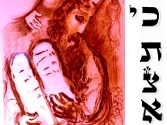
[ This week's Torah reading (parashat Ki Teitzei) is always read during the month of Elul... ]
09.11.16 (Elul 8, 5776) In last week's Torah reading (Shoftim), Moses defined an extensive system of justice for the Israelites and pointed to the coming Messiah who would be the rightful King of Israel. In this week's portion (i.e., Ki Teitzei: כי־תצא), Moses returns to the immediate concern of life in the promised land by providing further laws to be enforced regarding civil life in Israel. In fact, Jewish tradition identifies no less than 74 of the Torah's 613 commandments in this portion (more than any other), covering a wide assortment of rules related to ethical warfare, family life, burial of the deceased, property laws, the humane treatment of animals, fair labor practices, and honest economic transactions.
The haftarah for parashat Ki Teitzei (i.e., Isa. 54:1-10) is the fifth of seven readings from the prophets that are consecutively read before Rosh Hashanah. These "haftarot of comfort" foretell of the restoration of the Jewish people and of the coming of the Messianic Era. In this week's reading, the LORD compares the children of Israel to a wife who has long been barren. According to the sages, God tells the "Wife of His youth" to sing out with joy, for soon she will have a hard time keeping track of all her children! Many will return by means of a mighty wave of repentance that will sweep over the world when Jerusalem is finally redeemed and the Messiah Yeshua reigns in Israel.
Though the LORD hardened Israel for a season (Rom. 11:25-29), His love for her is constant and sure, and all His promises will be established. In the End of Days all Israel will be saved, in times "like the days of Noah." But just I God swore that the waters of Noah should no more go over the earth, so He has sworn that Israel will be regathered and restored.
רָנִּי עֲקָרָה לא יָלָדָה פִּצְחִי רִנָּה וְצַהֲלִי לא־חָלָה
כִּי־רַבִּים בְּנֵי־שׁוֹמֵמָה מִבְּנֵי בְעוּלָה אָמַר יְהוָה
ran·ni · ak·a·rah · lo · ya·la·dah · pitz·chi · rin·nah · ve·tza·ha·li · lo · cha·lah
ki · rab·bim · be·nei · sho·me·mah · mi·be·nei · ve·o·lah · a·mar · Adonai

"Sing, O barren one, who did not bear; break forth into singing and cry aloud,
you who have not been in labor! For the children of the desolate one
will be more than the children of her who is married," says the LORD."
(Isa. 54:1)

Prayer for just one thing...
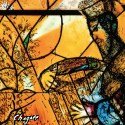
09.09.16 (Elul 6, 5776) King David says in Psalm 27:4, "One thing have I asked of the LORD, that will I seek" (אַחַת שָׁאַלְתִּי מֵאֵת־יְהוָה אוֹתָהּ אֲבַקֵּשׁ). Notice immediately that David asked for just one thing – not many things. He did not come with a litany of requests. He was not "double minded." As Kierkegaard said, "purity of the heart is to will one thing." David asked for the gift of focus and the pursuit of truth. He desired the "pearl of great price." Note also that the verb translated "I will seek" (avakesh) comes from the verb bakash (בָּקַשׁ) meaning "to wish" or "to desire." The verse could therefore be read as, "The one thing I ask from the Lord is for godly desire – for the will to "behold the sweetness of the Lord, and to inquire in His Presence." This is a prayer for the highest we may attain. The "one thing" David asked for was a heart made alive to perceive the wonder of God.
אַחַת שָׁאַלְתִּי מֵאֵת־יְהוָה אוֹתָהּ אֲבַקֵּשׁ
שִׁבְתִּי בְּבֵית־יְהוָה כָּל־יְמֵי חַיַּי
לַחֲזוֹת בְּנעַם־יְהוָה וּלְבַקֵּר בְּהֵיכָלוֹ
att·ah · sha·al·ti · me·et-Adonai · o·tah · a·vak·kesh
shiv·ti · be·vet-Adonai · kol-ye·mei · cha·yai
la·cha·zot · be·no·am-Adonai · u·le·va·ker · be·he·kha·lo

"One thing have I asked of the LORD, that will I seek after:
that I may dwell in the house of the LORD all the days of my life,
to behold the beauty of the LORD and to inquire in his Presence."
(Psalm 27:4)

If we consciously delight ourselves in the Lord, He has promised to give us the desires of our heart (Psalm 37:4). As Yeshua taught us: "seek first the Kingdom of God" (Matt. 6:33).
Confession of our Hope...
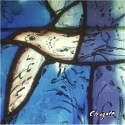
09.09.16 (Elul 6, 5776) It is written: "Faith is the foundation (i.e., ὑπόστασις: the "substance," reality, being, etc.) of hope, the conviction of the unseen... Without faith it is impossible to please God, for whoever would draw near must believe that God exists and rewards (μισθαποδότης) those who seek him" (Heb. 11:1,6). Note that God is pleased when we seek his presence, that is, when we when we look past the ephemera and ambiguity of the phenomenal world for the truth about spiritual reality. For our part, faith depends on confession. We must say that we believe, and affirm it with all our heart (Rom. 10:9). As it says, "I will make Your faithfulness known with my mouth" (Psalm 89:2). When you encounter tribulation, or experience some crisis of faith, reaffirm aloud: "I believe in God's promise..." Physically expressing your faith is itself an act of faith, and this encourages your soul to trust in God's healing reward even in the present struggle or darkness.
One of the more difficult tests of faith is learning to "endure yourself" as your inner character is being transformed by the mercy of God... To do so, you must receive the miracle of life in Yeshua (1 John 5:12). You must look beyond the realm of appearance, where the "outward man" perishes, to the realm of ultimate healing, where the "inward man" is finally liberated from the ravages of sin and death. This is the comfort we have in our affliction: God's promise revives our hearts to say, "I know that my Redeemer lives, and at the last he will stand upon the earth" (Job 19:25). Even in the "shadow of the valley of death" (i.e., this moribund and broken world), the LORD is with us and comforts us with His Presence (Psalm 23:4). We are given this great promise: "Just as we have borne the image of the man of dust, we shall also bear the image of the man of heaven" (1 Cor. 15:49).
Dear Lord, in the worst of our moments, thank you for seeing the Savior within us; thank you for heeding the groaning of hope that the Spirit imparts.... "When my heart was embittered, when I was pierced in heart, I was brutish and ignorant; I was like a beast toward you. Nevertheless, I am always with you; You hold my right hand" (Psalm 73:21-23). Despite this lament, however, the psalmist affirmed that he was always with God - notwithstanding his ignorance, his complaint of heart, his doubts, fears, and so on... God is not driven away by our pain and confusion, but on the contrary, he takes us by the hand and will not let go: "It was I who taught Ephraim to walk; I took them up by their arms, but they did not know that I healed them" (Hos. 11:3).
שְׁמַע־יְהוָה קוֹלִי אֶקְרָא
וְחָנֵּנִי וַעֲנֵנִי
she·ma · Adonai · ko·li · ek·ra
ve'chon·nei·ni · va'a·nei·ni

"Hear, O LORD, when I cry aloud;
be gracious to me and answer me"
(Psalm 27:7)

Spelling out "Teshuvah"

09.09.16 (Elul 6, 5776) Rabbi Sussya of Anipol once said: "There are five verses in the bible that constitute the essence of the Torah. These verses begin in Hebrew with one of these letters: Tav (תּ), Shin (שׁ), Vav (ו), Bet (בּ), and Hey (ה), which form the word for repentance, "teshuvah" (תְּשׁובָה). The five verses are 1) Tamim tiheyeh (תָּמִים תִּהְיֶה): "Be wholehearted before God" (Deut. 18:13); 2) Shiviti Adonai (שִׁוִּיתִי יְהוָה): "I have set the LORD always before me" (Psalm 16:8); 3) Va'ahavta lere'akha (וְאָהַבְתָּ לְרֵעֲךָ): "Love your neighbor as yourself" (Lev. 19:18); 4) Bekhol derakekha (בְּכָל־דְּרָכֶיךָ): "In all your ways know Him" (Prov. 3:6); and 5) Higid lekha (הִגִּיד לְךָ): "Walk humbly with your God" (Micah 6:8). In other words, the way of teshuvah, of answering God's call for you to return to Him, is to sincerely set the LORD before you, to love others, and to walk out your days in heartfelt gratitude.
הִגִּיד לְךָ אָדָם מַה־טּוֹב
וּמָה־יְהוָה דּוֹרֵשׁ מִמְּךָ
כִּי אִם־עֲשׂוֹת מִשְׁפָּט וְאַהֲבַת חֶסֶד
וְהַצְנֵעַ לֶכֶת עִם־אֱלהֶיךָ
hig·gid · le·kha · a·dam · mah · tov
u'mah · Adonai · do·resh · mi·me·kha
ki · im · a·sot · mish·pat · ve·a·ha·vat · che·sed
ve·hatz·ne·a · le·chet · im · e·lo·hey·kha

"He has told you, O man, what is good, and what the LORD requires of you:
Only to do justice, and to love kindness, and to walk modestly with your God"
(Micah 6:8)

Hebrew Study Card
In other words, "teshuvah" (repentance) may be seen as an acronym that stands for being wholehearted, seeking God, loving others, knowing God in all your journey, and walking in humility. May the LORD our God impart the miracle of teshuvah to each of us today....
Cleaving to Hope...

09.09.16 (Elul 6, 5776) "Love suffers long and is kind..." (1 Cor. 13:4). Have patience with all things, but most of all with yourself. We must "endure ourselves" along the way, often learning hard lessons about our own insufficiency. Have faith that despite all your imperfections, all your defects of character, and your overall weakness of heart, God is indeed at work in your darkness, molding and shaping you to bear witness of His glorious power to save the soul. The LORD holds your hand; his grace and love will help you persevere, giving you the will to press on in hope. Never give up, friends!
דָּבְקָה נַפְשִׁי אַחֲרֶיךָ
בִּי תָּמְכָה יְמִינֶךָ
da·ve·kah · naf·shi · a·cha·re·kha
bi · tam·khah · ye·mi·ne·kha

"My soul clings to you;
Your right hand upholds me."
(Psalm 63:8)
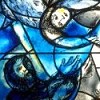
Hebrew Study Card
The concept of "cleaving" or "holding fast" to God is called devakut (דְּבָקוּת) in Jewish tradition, a word that derives from the root davak (דבק), meaning to "cling" or "stick" (the Modern Hebrew word for "glue" comes from the same root). Davak is used to describe how a man cleaves to his wife so that they become basar echad – "one flesh" (see Gen. 2:24), and is related to the word for bodily joint (debek), the bond of our bones to our skin (Job 19:20). Some have described devakut as "God consciousness imbued with love." "To cleave to Him - that means the cleaving of the mind to Him, for there is no devakut except that of the mind and the meditation of the heart" (Sh'ar ha-ahavah). We are able to cling or cleave to God because He first clung to the cross in His love for us (see 1 John 4:19).
Lord of the Center...

09.09.16 (Elul 6, 5776) God's Name is "I-AM-with-you-always," Immanuel (עִמָּנוּ אֵל) - always in the midst of you, your heart, your Center... The LORD is named this way because he is never without his own, and we are who we are in relation to his presence in our lives. Yeshua is not simply the Lord of the past or the Lord of the future, but the Lord of this moment, this "here" and this "now." He is the same yesterday, today, and forever - the breath of life, our sustaining hope, the Shepherd of our souls... Whatever else may come of this day, this is the day that the LORD has made, and we can find peace in God's Presence.
זֶה־הַיּוֹם עָשָׂה יְהוָה
נָגִילָה וְנִשְׂמְחָה בוֹ
zeh · ha·yom · a·sah · Adonai
na·gi·lah · ve·nis·me·chah ·vo

"This is the day that the LORD has made;
let us rejoice and be glad in it."
(Psalm 118:24)

Love's Greater Judgment...

09.08.16 (Elul 5, 5776) A sober admonition is given in our Scriptures regarding the great Day of Judgment (יוֹם הַדִּין) to come: "Not everyone who says to me, 'Lord, Lord,' will enter the kingdom of heaven, but the one who does the will of my Father who is in heaven" (Matt. 7:21). And yet what is the will of the Father but to trust in Messiah for life (John 6:40)? "What must we do, to be doing the works of God?" Yeshua answers: "This is the work of God, that you trust in the One whom he has sent" (John 6:28-29). The Torah of God centers on Messiah. On that day many will say to me, 'Lord, Lord, did we not ... do many mighty works in your name?' And then will I say to them, 'I never knew you; depart from me, you workers of lawlessness' (i.e., ἀνομία, from -α ('not') + νομος, 'torah') [Matt. 7:22-23]. From this statement we infer that ma'asim tovim (מַעֲשִׂים טוֹבִים), or "good works" -- even those done in the very Name of Messiah -- are insufficient for life, and that something more is therefore needed. Yeshua wasn't questioning their creed or theology, nor was he denying the deeds done in his name. What he was questioning was their heart, how they knew him, and whether they trusted in his love. "As long as Christ remains outside of us we are separated from him." Paradoxically, those who appealed to their good deeds were those who practiced "lawlessness," since they did not keep the law of faith (תורה של אמונה) in God's love...
"And this is one of the most crucial definitions for the whole of Christianity; that the opposite of sin is not virtue but faith." - Soren Kierkegaard (1813-1855)
Returning Back Home...

[ The following entry is related to the month of Elul and the "Season of Repentance..." ]
09.08.16 (Elul 5, 5776) The following parable speaks of the season of teshuvah: A king's son was at a far distance from his father. Said his friends to him, "Return to your father." He said, "I can't: the way is too far. His father sent word to him and said, "Go as far as you are able, and I will come the rest of the way to you. Thus says the Holy One, blessed be He, to his faraway children: "Return to Me, and I will return to you."
שׁוּבוּ אֵלַי וְאָשׁוּבָה אֲלֵיכֶם
אָמַר יְהוָה צְבָאוֹת
shu·vu · e·lai · ve·a·shuv·ah · a·lei·khem
a·mar · Adonai · tze·va·ot

"Return to me, and I will return to you,
says the LORD of hosts" (Mal. 3:7)

It is never too late to turn to God... there is always hope. The prophet Jeremiah spoke in the Name of the LORD: "Return, faithless Israel, declares the LORD. I will not look on you in anger, for I am kind (כִּי־חָסִיד אֲנִי), declares the LORD" (Jer. 3:12). When the people drew back in shame, however, God encouraged them by saying "My children, if you return, will you not be returning to your Father? Return, O faithless sons; I will heal your faithlessness. "Behold, we come to you, for you are the LORD our God."
Our Messiah Yeshua illustrated the idea of teshuvah (i.e., תְּשׁוּבָה, "returning to God") by telling the great story of the "prodigal son" (Luke 15:11-32). After squandering his father's inheritance, a wayward son "came to himself" and decided to return home, full of shame and self-reproach. "But while he was still a long way off, his father saw him and was filled with compassion for him; he ran to his son, threw his arms around him and kissed him." The father then ordered a celebratory meal in honor of his lost son's homecoming. When his older brother objected, the father said, "We had to celebrate and be glad, because this brother of yours was dead and is alive again; he was lost and is found."
God sees you while you are still "a long way off" (Rom. 5:8). He runs to you with affection when you first begin to turn your heart toward Him. Indeed, God's compassion is so great that He willingly embraces the shame of your sins and then adorns you with "a fine robe, a ring, and sandals." Your Heavenly Father even slaughters the "fattened calf" (Yeshua) so that a meal that celebrates your life may be served.
Teshuvah of Brokenness...
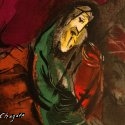
09.08.16 (Elul 5, 5776) Regarding the call to repentance we read: "Rend your hearts and not your garments and return to the LORD your God (וְשׁוּבוּ אֶל־יְהוָה אֱלהֵיכֶם), for he is gracious and merciful, slow to anger, and abounding in love..." (Joel 2:13). Genuine teshuvah (repentance) is not about the "outer layers" of life, but engages the deepest depths of heart; it is not expressed in religious practices or rituals but in personal brokenness and utter desperation... As King David said, "the sacrifices of God are a broken spirit (רוּחַ נִשְׁבָּרָה); a broken and contrite heart (לֵב־נִשְׁבָּר וְנִדְכֶּה), O God, you will not despise" (Psalm 51:17). As is written in our Haftarah portion for Shabbat Shuvah: "Return O Israel (שׁוּבָה יִשְׂרָאֵל), to the LORD your God, for you have stumbled because of your iniquity; take with you words and return to the LORD (וְשׁוּבוּ אֶל־יְהוָה) and say to him, 'Take away all iniquity; accept what is good, and we will pay with bulls the vows of our lips'" (Hos. 14:2).
"It is very dangerous to go into eternity with possibilities which one has oneself prevented from becoming realities. A possibility is a hint from God. One must follow it." - Soren Kierkegaard (1813-1855)
Note that the appeal to the LORD as "gracious and merciful, slow to anger, and abounding in steadfast love" (חַנּוּן וְרַחוּם הוּא אֶרֶךְ אַפַּיִם וְרַב־חֶסֶד) recalls the meaning of YHVH (יהוה) revealed to Moses in his state of brokenness over the sin of the Golden Calf (Exod. 34:6-7).
Return to Sanity...

09.08.16 (Elul 7, 5776) Teshuvah is a return to sanity which begins with the resolution to question your presuppositions and to change your thinking... It is a "coming to yourself" to encounter the truth (εἰς ἑαυτὸν δὲ ἐλθὼν: Luke 15:17). There are three requisites for genuine repentance, that is, for turning to God, namely: 1) seeing eyes; 2) hearing ears; and 3) an understanding heart ready to be healed (Isa. 6:10). God alone does the miracle but it is nevertheless our responsibility to believe that the miracle is for us. Repentance is the first step of salvation, as Messiah said: "Repent and believe in the good news" (Mark 1:15), and apart from repentance man has no real existence. As Yeshua said, "Truly, truly, I say to you, unless one is born again he cannot see the kingdom of God" (John 3:3). Repentance is the expression of trust in God's love, and by means of it we affirm: "I am ready to exist as a person of worth."
Clear Thinking and Teshuvah...
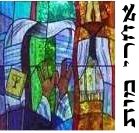
09.07.16 (Elul 4, 5776) "As a man thinks in his heart, so is he" (Prov. 23:7). Consider for a moment how your thinking defines your inner reality and the quality of your spiritual life. Thinking is inextricably linked to faith, and therefore we are responsible not only for what we believe, but for how we think (Acts 17:30-31). Sinful thinking creates "negative energy" that brings pain to yourself and others. Left unchallenged, such impaired cognitive function leads to slavery of the mind, hopeless addictions of thought, and distressing captivity. The first step to freedom is to confess our sin, acknowledging the reality of our own negativity – and bringing that truth to the light. Therefore teshuvah – turning to God – involves cheshbon hanefesh (חֶשְׁבּוֹן הַנֶּפֶשׁ), accounting for our soul and yielding it to the love of God for rectification: "If we confess our sins, he is faithful and just to forgive us our sins and to cleanse us from all unrighteousness" (1 John 1:9). For freedom we have been set free, and that means freedom from the power of the lie. If we are blind to our own sin, we cannot confess the truth to find lasting healing (James 5:16).
"Where am I? Who am I? How did I come to be here? What is this thing called the world? How did I come into the world? Why was I not consulted? And If I am compelled to take part in it, where is the director? I want to see him." - Soren Kierkegaard
The King's Torah...

[ The following entry concerns this week's Torah reading, parashat Shoftim. Please read the Torah portion to "find your place" here. ]
09.07.16 (Elul 4, 5776) From our Torah this week (Shoftim) we read: "And he shall write for himself a copy of the Torah (i.e., mishneh ha'torah: מִשְׁנֵה הַתּוֹרָה) ... and it shall be with him, and he shall read in it all the days of his life so that he may learn to fear the LORD his God by keeping all the words of the Torah" (Deut. 17:18-19). The Jewish king was required to carry his sefer Torah (Torah scroll) with him at all times (Sanhedrin 21b). When King David said, "I have set the Lord always before me; he is at my right hand" (Psalm 16:8), he was referring to Torah which he kept tied to his arm (tefillin shel yad). David literally "set" the Word of the LORD upon his right hand to help him keep focused. Likewise the Spirit of God ties Torah upon our hearts (Jer. 31:33). Studying and meditating on Torah elevates our souls and attunes us to God's Presence. As David said: "In my heart I have stored up your word so that I won't miss seeing you. Blessed are you, O LORD; teach me your decrees."
בְּלִבִּי צָפַנְתִּי אִמְרָתֶךָ
לְמַעַן לא אֶחֱטָא־לָךְ
בָּרוּךְ אַתָּה יְהוָה לַמְּדֵנִי חֻקֶּיךָ
be·lib·bi · tza·fan·ti · im·ra·te·kha
le·ma·an · lo · e·che·ta · lakh
ba·rukh · at·tah · Adonai · lam·me·dei·ni · chuk·ke·kha

"In my heart I have stored up your word
so that I might not sin against you.
Blessed are you, O LORD; teach me your decrees."
(Psalm 119:11-12)
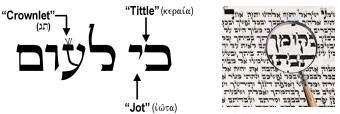
Some people claim that Jesus spoke Aramaic, not Hebrew. Well, consider this. If the king of the Jews was required to "make a copy of sefer Torah," then surely Yeshua, the great King of the Jews, the Mashiach, read Hebrew and understood kotzo shel yod (קוֹצוֹ שֶׁל יוֹד) - "every jot and tittle" of its meaning (see Matt. 5:17-19). Indeed, Jesus knew the traditional Hebrew blessings, prayers, and hymns (Matt. 26:26-30); he chanted Hebrew in synagogue (Luke 4:16), and he reasoned with the sages in Jerusalem as a young boy (Luke 2:42-27). Surely the King of the Jews spoke lashon hakodesh... (more here)
Prayer of the Heart...

09.07.16 (Elul 4, 5776) Isaiah the prophet said over 2,500 years ago, in the name of God: "This people draw near to me with their mouth and honor me with their lips, but their hearts are far from me" (Isa. 29:13, Matt. 15:8). The sages comment: "Nothing has changed from that day to this. Therefore, when you go to pray, leave yourself outside – go in only with your heart." Amen, the language of the heart is what is most important. "When you pray, rather let thy heart be without words than thy words be without heart" (Bunyan).
Teshuvah of the Mind...

09.07.16 (Elul 4, 5776) We are responsible to walk in truth and to reject what is false (1 John 4:6). This implies that we have a moral and spiritual duty to think clearly and not to abuse our minds (Phil. 4:8; Rom. 12:2). The LORD our God will help us to do this, as Yeshua said: "I will ask the Father, and he will give you a Helper (παράκλητος, someone "called to one's side"), to be with you forever, even the Spirit of Truth (רוּחַ הָאֱמֶת), whom the world cannot receive, because it neither sees him nor knows him" (John 14:16-17). The Spirit of Truth helps us "discern what is the will of God, what is good, acceptable, and perfect" (Rom. 12:2) and empowers us to take "every thought captive" to the reality of the Divine Presence (2 Cor. 10:4-5). Truth is connected to memory - both in our personal histories as well as the history of God's redemptive actions performed on our behalf. Truth is ἀλήθεια, "a-letheia," not forgetfulfulness... Hence we are constantly commanded to remember what God has done for us and to "diligently repeat" the truth to our children (Deut. 6:4-9). Similarly, the Spirit of Truth brings to remembrance the words of Yeshua to our hearts (John 14:26).
Followers of Yeshua are taught to love the truth and to think clearly about their faith. The ministry of reconciliation itself is defined as "the word of truth, by the power of God, through weapons of righteousness" (2 Cor. 6:7). Indeed, the word of truth (τὸν λόγον τῆς ἀληθείας) is a synonym for the "gospel of salvation" itself (Eph. 1:13; Col. 1:5; James 1:18). We are saved by Yeshua, who is the "way, the truth, and the life" (John 14:6). God commands all people to believe this truth (Acts 17:30-31; 1 Tim. 2:4). People perish because "they refuse to love the truth and so be saved" (2 Thess. 2:10-12). Therefore we see that truth is central to salvation itself....
"The greatest hazard of all, losing one's self, can occur very quietly in the world, as if it were nothing at all. No other loss can occur so quietly; any other loss - an arm, a leg, five dollars, a wife, etc. - is sure to be noticed." - Kierkegaard
Genuine teshuvah (repentance) implies that we will change our thinking in order to be transformed by God's truth. The follower of Messiah "cannot do anything against the truth, but only for the truth" (2 Cor. 13:8). During this Season of Teshuvah, may God help us all to think clearly and to turn our thoughts to Him. May He protect us from the vanity of a darkened mind and from all distractions that attempt to seduce us away from Him. May the LORD give us the purity of heart to know and do His will in the truth. Amen.
Note: For more on this subject, see "Teshuvah of the Mind."
Focus of the Heart...
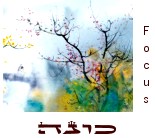
[ The following is related to the month of Elul and the theme of teshuvah (repentance)... ]
09.07.16 (Elul 6, 5776) Regarding the subject of teshuvah (returning to God) Yeshua taught: "Blessed are the pure in heart, for they shall see God'" (Matt. 5:8). The Greek word translated "pure" is katharos (καθαρός), a word sometimes used describe the cleansing of a wound (catharsis), or to describe the unalloyed quality of a substance through refining fire (the corresponding Hebrew word for the "pure of heart" (בַּר־לֵבָב), used in Psalm 24:4, comes from a root (בָּרַר) that likewise means to purify by fire). Metaphorically, then, purity of heart refers to separation from the profane, that is, singleness of vision, wholeheartedness, passion, wonder, and focused desire for the sacred. As the Beatitudes reveal (Matt. 5:3-8), only those who are impoverished in spirit, who mourn over themselves and hunger for God's mercy, are refined by their struggle to see God (the Greek text implies these will see God now – with inward vision – as well as in the world to come). Because the pure in heart use ayin tovah, the good eye, they walk "in the light, as God is in the light" (Matt. 6:22). When we are undivided in heart, the Spirit imparts to us hidden wisdom (1 Cor. 2:6-7) and we are able to discern hidden realities that others do not see (1 Cor. 2:14). As we center our affections on Yeshua, we become unified, made whole, and healed of our inner fragmentation. We see the Lord both in this world, through his effects, and then panim el panim (פָּנִים אֶל־פָּנִים), "face to face," in the world to come. Our hope purifies us for that coming great day of full disclosure (1 John 3:2-3; Heb. 12:14).
If we are impure of heart, we will be inwardly divided, unfocused, fragmented, filled with destabilizing anxiety, envy, anger, and so on. More tragically, because we seek to escape ourselves, we will be devoid of a true center, without a focal point or abiding purpose, and therefore we will be lost to ourselves, wandering and without rest (God forbid).
It is the Spirit that gives life - the flesh is no help at all (John 6:63). The Holy Spirit imparts the "pulse" of the Divine Life, and we gain newness of life when we trust God for purification from our sins through Yeshua our LORD. As King David further attested: Lev tahor bara li Elohim – "Create in me a clean heart, O God" and renew a right spirit within me (Psalm 51:10). Only the new heart (lev chadash) created by power of God's Spirit can possibly yield the life of the Spirit within us. The creation of a new heart represents the transformation of your whole inner nature - with the impartation of new appetites, new passions, new desires, and the rebirth of your will. If you struggle with being inwardly divided, ask the LORD to give you the blessing of purity of heart...
Note: Some people tend to think of "purity of heart" in moral terms, such as not looking with lust on others, not coveting, etc., though these things are really symptoms of disordered love... Genuine purity is a matter of focus, of finding the "good portion" and the "one thing necessary" (Luke 10:42). Such purity heals you of ambivalence, settling the heart's inner decision. Purity of heart realizes that all that you've ever longed for is found in God alone. It is a great, great gift from heaven to know God as your heart's true desire - to fully understand that your relationship with Him is the ultimate concern and treasure of your existence.
Guarding the Heart...

[ Our Torah reading for this week, parashat Shoftim, is always read at the outset of the Forty Day Season of Teshuvah... ]
09.06.16 (Elul 3, 5776) Parashat Shoftim begins, "judges and officers you shall give to yourself (תִּתֶּן־לְךָ) in all your gates" (Deut. 16:18). Some of the sages interpret the word "gates" (שׁערים) to refer to our sense organs, for example, the "eye gate," the "ear gate," and so on. Likewise we are to write the words of Torah "upon the doors of our house and on our gates" (Deut. 6:9). Because we are naturally inclined to "spy after our hearts and eyes" (Num. 15:39), we are therefore admonished to appoint "gatekeepers" to protect the sanctity of our heart (Prov. 4:23).
מִכָּל־מִשְׁמָר נְצר לִבֶּךָ
כִּי־מִמֶּנּוּ תּוֹצְאוֹת חַיִּים
mik·kol · mish·mar · ne·tzor · li·be·kha,
ki · mi·me·nu · to·tze·ot · cha·yim

"Above everything else guard your heart,
for from it are the contours of life"
(Prov. 4:23)

Hebrew Study Card
Notice that the word mishmar (מִשְׁמָר) refers to the act of guarding someone closely, just as an prison guard or warden might keep watch over a prisoner. The phrase translated "with all diligence" (mikkol-mishmar) literally means "more than anything that might be guarded," and is used here to intensify the command to exercise vigilance. Plainly put, this verse commands us to watch over our heart more than anything else.
And yet "the whole head is sick, and the whole heart faint" (Isa. 1:5). We understand how apt we are to go astray in our affections, and therefore the heart is easily divided, obstructed, and liable to failure... Despite its frailty, however, the heart determines totze'ot chayim, or the "issues" or "contours" of life. In the Tanakh, the word totza'ot is often used to refer to the borders of territories or the boundaries of a city. This verse is saying that from the heart of a person (lev) a "map" or "chart" to life is drawn. As the heart is either pure or corrupt, so will be the course of one's life... Purity of heart represents healing, which means being single-minded in our affections and attention before the LORD.
How you choose to guard your heart from inner corruption and hardness will determine the "road" of your life. Concerning this verse the Metzudos commentary says, "Above all – more than anything else – a person must be careful to guard his heart from improper thoughts, for one cannot contemplate using the heart – the very vortex of life – to harbor thoughts that are inimical to life." Because the flesh is weak, we must be vigilant lest we become cynical, weary, and unfeelingly selfish. An unguarded heart soon becomes troubled, lonely, suspicious, and unstable. If, however, we keep ourselves from the obstruction of sin, we will experience the free flow of compassion, encouragement, and joy. The faithful heart is open - it believes all things, hopes all things, and endures all things (1 Cor. 13:7).
"Judges and officers you shall give to yourself (תִּתֶּן־לְךָ) in all your gates" (Deut. 16:18). Note that that Torah states that you shall appoint these to yourself, stated in the singular, not in the plural, to suggest that it is your personal responsibility to guard your heart from negative influences. God considers it your duty to yield yourself as a vessel or "steward" of the kingdom of God (Rom. 6:13). We must regularly ask God to enlighten "the eyes of the heart" according to His wisdom and power (i.e., truth revealed in Scripture), and to impart the power of the Holy Spirit to transform our desires and affections so that they conform to the character of the Messiah.
You shall be made whole...

09.06.16 (Elul 3, 5776) How long will you go "limping" between two different opinions? What is more important to you than your relationship with the LORD God of Israel? Our Torah reading for this week (i.e., parashat Shoftim) reminds us to make up our minds and return to the LORD: "You must be whole (תָּמִים) with the LORD your God" (Deut. 18:13). We are made "whole" or "perfect" (i.e., complete) when we resolutely turn to God for healing of our inner dividedness, as it says: "The Torah of the LORD is perfect (תָּמִים), returning the soul" (Psalm 19:8). And where it is written, "Let us hear end of the matter: Fear God and love his commandments, the text adds: ki zeh kol-ha'adam (כִּי־זֶה כָּל־הָאָדָם), "for this is the whole man," suggesting that those who return will be healed of their double-mindedness (Eccl. 12:13). Ultimately we are made whole when we are united to God in Messiah, for then we are "with the LORD our God" and the Holy Spirit writes Torah within the inward heart of faith (Jer. 31:33).
תָּמִים תִּהְיֶה עִם יְהוָה אֱלהֶיךָ
ta·mim ti·he·yeh im Adonai E·lo·he·kha

"You shall be whole with the LORD your God"
(Deut. 18:13)

In the Sefer Torah (i.e., the handwritten Torah scroll), the first letter of the word tamim ("wholehearted") is written extra LARGE in order to emphasize the importance of the word. Notice also the little word "with" (עִם) that follows in this verse. This hearkens to Micah 6:8: "What does the LORD require of you but to do justice (mishpat), and to love kindness (chesed), and to walk humbly (hatznea lechet) with your God?" Having a humble heart walks with the LORD. Humility begins with the awareness that 1) there is a God and 2) you are not Him.... It is the practice of "knowing before whom you stand" and living your life in light of this fundamental truth.
For more on this topic please see: "Make Up Your Mind: Further thoughts on Shoftim."
The Season of Teshuvah...
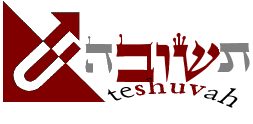
09.06.16 (Elul 3, 5776) Soren Kierkegaard once perceptively noted that life must be lived forward, but it can only be understood backward, and therefore the present hour provides the only real opportunity you have to examine your soul... Therefore "repent one day before you die," and that day is today, since of course no one knows the day or the hour of his death. The midrash notes that the word Elul (אֶלוּל), when read backward, spells lulei (לוּלֵא), meaning "if not" or "were it not for...", which suggests that the last month of the Jewish year serves as a season to examine ourselves, to confess our sins, and to resolve to more completely turn toward the Divine Presence before the coming new year... Indeed the gematria (letter value) of the name Elul (1+30+6+30) is the same as the word binah (בִּינָה), "understanding," or the ability to discern between (בֵּין) truth and error. During this season of teshuvah, then, we ask the Lord to impart to us greater understanding about how to return to him bekhol levavkha, with all our hearts...
Teshuvah and Healing...
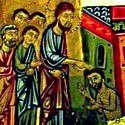
[ The following is related to the month of Elul and the theme of teshuvah (repentance)... ]
09.06.16 (Elul 7, 5776) Repentance is an ongoing disposition of life in Messiah, since it rightly relates us to God. First we encounter our incurable sickness - the inner contradiction and bondage of soul that both loves and hates sin - and then we seek God's saving power in Yeshua. As the Apostle Paul said: "Who can save me from the misery of myself? – God alone, through Jesus (Rom. 7:18-25). This is the first step, to know the "miserable creature that I am," that is, the slavery of your will to sin, and the second is to be willing to give this sickness of your soul to God's care in Jesus. As he said, "Those who are well have no need of a doctor, but those who are sick. I have not come to call the 'righteous,' but sinners to repentance" (Luke 5:31-32). Yeshua regarded forgiveness of your sins as essential to finding inner healing, even more important than health, prosperity, or religious observance.
If it is going to move us at all, we must understand that repentance means returning to love, finding your heart's desire in God... As Yeshua said, "Repent, for you have lost your first love..." (Rev. 2:4-5). Turn around: Look at what is missing within! He appeals to you like a lover standing outside in the cold, calling out your name, and knocking for you to open the door to let him inside (Rev. 3:19-20). Open the door of your heart! Return to him now! "Lord, help me turn to receive your love..."
Call to do Teshuvah...

[ The following entry is related to the month of Elul and the "Season of Repentance..." ]
09.05.16 (Elul 2, 5776) All of us have unhealed parts, "hidden faults" of which we are not fully aware. Therefore king David prayed, "Who can discern his errors? cleanse me from secret faults" (Psalm 19:12). We are cleansed by confession, that is, by looking within our hearts to uncover deeper motivations... If we are honest with ourselves we may discover, for example, that we are angry or fearful people, despite how we otherwise wish to regard ourselves. If you find yourself unable to let something go, for instance, some pain or failure of the past, remind yourself that you must do so if you want to move on with your life. Focusing on how things could have been different is to be enslaved to the past. The goal of teshuvah (repentance) is to turn us back to God for life, but to do this, we must be be willing to let go of what makes us sick.
שְׁגִיאוֹת מִי־יָבִין מִנִּסְתָּרוֹת נַקֵּנִי
גַּם מִזֵּדִים חֲשׂךְ עַבְדֶּךָ
אַל־יִמְשְׁלוּ־בִי אָז אֵיתָם
וְנִקֵּיתִי מִפֶּשַׁע רָב
she·gi·ot · mi-ya·vin · min·nis·ta·rot · nak·kei·ni
gam · mi·ze·dim · cha·sokh · av·de·kha
al-yim·she·lu-vi · az · e·tam
ve·ni·ke·ti · mi·pe·sha · rav

"Who can discern his errors? Cleanse me from secret faults;
Keep back your servant also from presumptuous sins;
let them not have dominion over me! Then I shall be blameless,
and innocent of great transgression." (Psalm 19:12-13)

Note that the Hebrew word translated "errors" (i.e., shegi'ot: שְׁגִיאוֹת) comes from a root word (שָׁגָה) that means to wander, stray, or transgress. The question raised by David is rhetorical: "Who can discern his errors?" No one – apart from divine intervention... David asked to be cleansed from his "secret faults," which are not those that were performed by him "in secret," but rather those that were unknown, unseen, and unconscious to his own sense of awareness. These are "mindless" sins, unthinking offenses, hidden dispositions, character traits and actions that a person unwittingly performs, perhaps because of deep forces of which he was oblivious. These are the "secret sins" set in the light of God's face (Psalm 90:8); the "sluggish darkness" of the human heart that leads to death and ruin: "The heart is deceitful above all things, and incurably sick; who can understand it?" (Jer. 17:9). How many of us, after all, are fully aware of what we are doing when we are doing something? How many of us are completely transparent both to ourselves and before God, with no unclear motives, etc.? We must always be vigilant... There is always the force of habit, or the subconscious desires or conflicts of the inner life, that work on us, not to mention the trauma of our past and the present devices from the enemy of our souls. May the LORD give us the willingness to be healed, even if there are parts of ourselves that seem to resist that healing.
Note further that "presumptuous" sins (מִזֵּדִים) are not necessarily flagrant sins as much as those that arise from self-reliance or pride (זָדוֹן). Only the humble of heart can be truly free from the dominance of presumption and sin. "Keep steady my steps according to your promise, and let no iniquity get dominion over me" (Psalm 119:133). May God make us humble of heart, free from presumption and the illusion that we do not need God for every step we take. Therefore may it please the Lord to heal those parts of ourselves that don't even know they need to be healed... Amen.
בָּרוּךְ יְהוָה הַמְּרָפֵא אֵת חֲטָאֵנוּ הַנִּסְתָּרִים
ba·rukh · Adonai · ha·me·ra·fei · et · cha·ta·ei·nu · ha·nis·ta·rim

"Blessed is the LORD who heals our hidden sins."

Practicing Righteousness...

[ The following entry concerns this week's Torah reading, parashat Shoftim. Please read the Torah portion to "find your place" here. ]
09.05.16 (Elul 2, 5776) The Hebrew word tzedek means "righteousness" or "justice" and is one of the fundamental attributes of the LORD God of Israel. Almighty God is called the LORD our Righteousness (יהוה צִדְקֵנוּ), the Righteous God (אֱלהִים צַדִּיק), the Righteous Judge (שׁוֹפֵט צַדִּיק), and so on. The righteousness of God implies that we who are created in His image have a corresponding duty to exercise righteousness in our daily lives. Practicing righteousness is assuredly not "optional" for the follower of Yeshua, who is rightly called the King of Righteousness (מֶלֶךְ הַצְּדָקָה). Tzedek, tzedek tirdof (צֶדֶק צֶדֶק תִּרְדּף), "righteousness, righteousness, you shall pursue," is a message for Christians. "If you know that He is righteous, you may be sure that everyone who practices righteousness (πᾶς ὁ ποιῶν τὴν δικαιοσύνην) has been born of him" (1 John 2:29). "Doing" and "being" are united in the Hebraic mindset...There is no "being" righteous apart from the fruits of righteousness. As Yeshua said, "You shall know them by their fruits..."
וְהָיָה מַעֲשֵׂה הַצְּדָקָה שָׁלוֹם
וַעֲבדַת הַצְּדָקָה הַשְׁקֵט
וָבֶטַח עַד־עוֹלָם
ve'haya ma'aseh ha'tezdakah shalom
va'avodat ha'tzedakah hashket
va'vetach ad olam

"And the work of righteousness shall be peace;
and the service of righteousness shall be quietness
and assurance for ever."
(Isa. 32:17)
Let me emphatically add that while we are not justified by "works of righteousness" (Titus 3:5-6), we nonetheless will evidence righteousness as a result of the miracle of regeneration. Indeed, faith in the efficacy of the cross of Yeshua (i.e., God's salvation) implies acknowledging the righteousness of God... In other words, you cannot have the cross without the Torah, and you cannot have the Torah without the cross... Faith in God's righteousness transcends the weakness of the law (caused by human frailty, not by the character of the law itself) by imparting a new principle (or law) called the law of the Spirit of Life in Yeshua the Messiah (תּוֹרַת רוּחַ הַחַיִּים בְּיֵשׁוּעַ הַמָּשִׁיחַ): "For the law of the Spirit of life in the Messiah Yeshua has set you free from the law of sin and death" (Rom. 8:2). The "law of sin and death" (תּוֹרַת הַחֵטְא וְהַמָּוֶת) is the principle of the "flesh" that we remain subject to until we come to completely trust in the righteousness that only God gives us through Yeshua our Savior. Then the miracle occurs...
For more on this see, "The Call for Righteousness: Further thoughts on Shoftim."
 |
Seeing with new eyes...

[ The following is related to the month of Elul and the theme of teshuvah (repentance)... ]
09.05.16 (Elul 2, 5776) Teshuvah, or "turning to God," means learning to see with new eyes, from a radically new perspective. As we change our focus, we see that "everything is new" (2 Cor. 5:17). Perception is a matter of heart, and therefore we choose to see and hear what we want to see and hear (Isa. 6:10; John 12:40). If we do not see God, it is because we have decided to turn away from his presence (Rom. 1:18-22). Our desires determine what we see and how we focus; we choose to interpret reality by an act of will, not by merely seeing with the physical eyes. We believe in order to see, not the other way around, and what we see is therefore disclosed by faith (Matt. 9:29). Often we do not see things as they are, but how we want to see them. We see as we are in our hearts: "As a man thinks in his heart, so is he" (Prov. 23:7).
How you choose to see defines the world you will inhabit (Prov. 4:23). The eyes follow the heart, and therefore seeing is a matter of inner attitude (Matt. 6:22-23). Yeshua said that our problem comes from within: "Out of the heart proceed evil thoughts," and these thoughts show up in our actions (Matt. 15:19; Prov. 11:27). The Spirit of God indeed creates a new heart and spirit within us (Ezek. 36:26), but the "eyes of the heart" (ὀφθαλμοὺς τῆς καρδίας) must be enlightened by constantly turning to God (Eph. 1:18). We set the LORD always before us. We need the "good eye" of the Spirit to impart purity of heart, enabling us to see the Presence of God all around us (Matt. 5:8; Isa 6:3).
The apostle Paul urges us to undergo self-examination: "Put yourselves to the test (ἑαυτοὺς πειράζετε) to see if you are in the faith; prove yourselves (ἑαυτοὺς δοκιμάζετε) to see whether Yeshua the Messiah lives within you - lest you fail the test and be disapproved (ἀδόκιμος)" (1 Cor. 13:5). Notice that the verb "to prove" (dokimadzo: δοκιμάζω) means to test something by fire (like a precious metal) to discover its quality and purity. The Spirit searches the deep things of the heart (1 Cor. 2:10).
"Dear LORD God, help me change my thinking; correct my faulty vision, heal my distorted focus and perspectives... Open my eyes to behold your beauty, your truth, and your glory in my life. Help me seek your love and goodness -- and to find it, even here, in this passing world of shadows. Do not let the pain of the past blind me to the healing of this present hour. Help me to "spy out" the land about me and report that it is good - flowing with milk and honey - rather than as a place of fear and inevitable pain... Dear Yeshua, Lord of all that is worthy and good, help me not overlook the everyday miracles and wonders that surround my way. Amen."
We can either put all our energy into not falling, or we can focus on the walk before us... Changing your vision means no longer looking at the hell of your past, but looking to the promise of a glorious future. Focus on God and his great love for you; do not return to the house of bondage, the prison house of fear. Keep the "eyes of your heart" on Yeshua who is the Light, the Compassion, and the Healing touch of the LORD our God. May you hear him say, "Blessed are your eyes, for they see, and your ears, for they hear (Matt. 13:16).
Torah of Teshuvah...

09.05.16 (Elul 2, 5776) Perhaps you (like me) once learned Psalm 19:7 as, "The law of the LORD is perfect, converting the soul." The Hebrew reads, תּוֹרַת יְהוָה תְּמִימָה מְשִׁיבַת נָפֶשׁ, and might better be translated as, "The Torah of the LORD is perfect, returning the soul." Heeding Torah causes our souls to undergo teshuvah (תְּשׁוּבָה), or "repentance," which is the very theme of Rosh Hashanah and the High Holidays.
תּוֹרַת יְהוָה תְּמִימָה מְשִׁיבַת נָפֶשׁ
עֵדוּת יְהוָה נֶאֱמָנָה מַחְכִּימַת פֶּתִי
torat · Adonai · temimat · meshivat · nafesh
eidut · Adonai · ne'emanah · machkimat · peti

"The Torah of the LORD is perfect, returning the soul
The testimony of the LORD is reliable, making wise the simple."
(Psalm 19:7)

Download Study Card
This again is the message of teshuvah (תְּשׁוּבָה), or "repentance." We turn away (shuv) from ourselves to discover that only the love of God given in Yeshua gives life to our dead hearts. Teshuvah is therefore first of all a matter of faith, of trusting in the miracle of God. And though it is indeed a great gift from heaven, it requires that we pass through the "narrow gate" of humility by confessing the truth about who we are (Matt. 7:13). We turn away from our pride; we acknowledge our inner poverty, our neediness, and we mourn over the loss and hurt caused by our sin. Teshuvah turns away from our attempts to defend or justify ourselves and instead turns to God to heal our separation from Him (Rom. 8:3-4). By faith God buries our old nature and transforms us into a new creation (2 Cor. 5:17).
The Month of Elul...
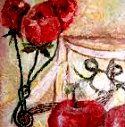
09.04.16 (Elul 1, 5776) Last evening marked Rosh Chodesh Elul, the first day of the 6th Hebrew month of the Torah's calendar. The word "Elul" (אֱלוּל) is said to be an acronym for the phrase, ani le'dodi ve'dodi li (אֲנִי לְדוֹדִי וְדוֹדִי לִי), "I am my beloved's, and my beloved in mine" (Song 6:3), to encourage us to return to God, to become full of desire for the Beloved of our soul. We are likened to empty vessels in need of oil, and the call to teshuvah moves us to seek to be filled with the Spirit of God's love and kindness. Indeed, the Spirit takes us into the desert places to reveal to us our need (Deut. 8:3; Jer. 2:2; Luke 4:1). "Blessed are those who hunger and thirst for righteousness, for they shall be filled" (Matt. 5:6).
אֲנִי לְדוֹדִי וְדוֹדִי לִי
הָרעֶה בַּשׁוֹשַׁנִּים
a·ni · le·do·di · ve·do·di · li
ha·ro·eh · ba·sho·sha·nim

"I am my beloved's and my beloved is mine;
he grazes among the lilies."
(Song 6:3)

Download Study Card
This verse is sometimes linked to the "lilies" (i.e., shoshanim: שׁשַׁנִּים) mentioned in Psalm 45, which presents a Messianic vision of the Divine Bridegroom and offers an "ode" for a forthcoming heavenly wedding: "Hear, O daughter, and consider, and incline your ear: forget your people and your father's house, and the king will desire your beauty. Since he is your lord, bow to him" (Psalm 45:10-11). Soon the LORD will return for His betrothed, and then we will finally celebrate the great "marriage" with our King!
God wants us to seek him, to yearn for him, and to desire him... he sings out to our hearts in love. Interestingly, where it says: אֲנִי לְדוֹדִי וְדוֹדִי לִי הָרעֶה בַּשׁוֹשַׁנִּים, we can read, "I am for my beloved, and my beloved is for me, the Shepherd (הָרעֶה) among the lilies." Where is your Shepherd? Among the flowers... in a place of love and beauty set for you.
Parashat Shoftim - שופטים

09.04.16 (Elul 1, 5776) Chodesh tov, dear friends... Our Torah reading for this week (parashat Shoftim) begins with the commandment that the people of Israel should appoint judges (i.e., shoftim: שׁפְטִים) and officers (i.e., shoterim: שׁוֹטְרִים) so that justice would be enforced throughout the promised land (Deut. 16:18). The call for justice is famously stated as, "tzedek, tzedek tirdof" (צֶדֶק צֶדֶק תִּרְדּף): "Justice, Justice you shall pursue" (Deut. 16:20). The word tzedek means "righteousness" and involves the duty to adhere to moral truth. Throughout the Torah portion the theme of social justice predominates, as the ethical characteristics for judges are defined, as well as for elders, kings, prophets, and priests, all of whom are responsible for maintaining a just and healthful society. As the prophet Isaiah wrote: "The work of righteousness (tzedakah) shall be peace" (וְהָיָה מַעֲשֵׂה הַצְּדָקָה שָׁלוֹם), and added that "the service of righteousness (וַעֲבדַת הַצְּדָקָה) shall be quietness and security forever" (Isa. 32:17).
בִּרְבוֹת צַדִּיקִים יִשְׂמַח הָעָם
וּבִמְשׁל רָשָׁע יֵאָנַח עָם
bir·vot · tzad·di·kim · yis·mach · ha·am
u·vim·shol · ra·sha · ye·a·nach · am

"When the righteous increase, the people rejoice,
but when the wicked rule, the people groan."
(Prov. 29:2)
Regarding making judgments about others we should try to always extend the benefit of the doubt (i.e., kaf zechut, "the hand of merit"). When we judge mercifully and in accord with the truth, the Divine Presence joins us, but if we act corruptly, we "push" the Presence away and create a sense of exile. Yeshua told us to "whatever you wish that others would do to you, do also to them, for this is the Law and the Prophets" (Matt. 7:12). In other words, as we judge others, so we are judged ourselves. We must be careful to avoid rationalizations or to fool ourselves... Looking at others from a selfish perspective is ultimately a form of "bribery" that blinds us to the truth about righteousness (see Deut. 16:19).
Tzedek, tzedek tirdof also means that justice must be pursued in a just manner. The methods used to obtain justice must themselves be just. The Scriptures therefore do not advocate pragmatism or utilitarian thinking. There are no "noble lies" in the Kingdom of Heaven. Violence (verbal or physical) or deception done in the name of God is always a bad idea. We must execute great restraint and caution when we confront oppression in the world. If you want to change the world around you, begin with yourself....
Remember who you are...
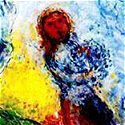
[ The following entry concerns this week's Torah reading, parashat Re'eh: "See!" Please read the Torah portion to "find your place" here. ]
09.02.16 (Av 29, 5776) One of the greatest mistakes is to forget who you really are and your beloved status before the LORD... "Fear not, for I have redeemed you; I have called you by name, you are mine" (Isa. 43:1). Forgetting who you are leads to forgetting who the LORD is, just as forgetting who the LORD is leads to forgetting who you are...
"You are children of the LORD your God (בָּנִים אַתֶּם לַיהוָה אֱלהֵיכֶם). You shall not cut yourselves for the dead" (Deut. 14:1). In this verse, Moses reminds the people that they are children of the Eternal (יהוה) and therefore they were not to mourn for the dead like those without hope of life beyond the grave... Our God, the Father of Israel, is the Source of Life, and even if our earthly fathers die, we will never be orphans, because the LORD, the Everlasting God who is the "God of the spirits of all flesh" (אֱלהֵי הָרוּחת לְכָל־בָּשָׂר), always watches over us: "He will not let your foot be moved; he who keeps you will not slumber" (Psalm 121:3). But if we forget who we are, if we lose sight of our place in the Heavenly Father's heart, then we are likely to fall into a state of excessive and self-destructive mourning over the losses we experience in this world. In the most tragic cases, this can lead to the darkness of unremedied despair, "living among the tombs, crying out and cutting himself with stones" (Mark 5:5). On the other hand, if remember our place at the Father's table as his children, if we take hold that we are beloved of God - his very own "treasured people" - then we will regard the difficulties we encounter in this world as a test of faith intended for our good (Deut. 8:3,16, Jer. 29:11).
God regards us as his beloved children, and therefore we trust him as a child trusts his father. We may not always understand all that our father does, but we have complete faith in his good will toward us, even in the face of death itself. We do not engage in self-destructive mourning, then, because we are treasured by God and we trust in God's promises for eternal life (John 11:25). Because of this, Jewish halachah (legal custom) puts limits to grieving practices. Excessive mourning, interminable gloom, self-destructive anger, or the refusal to let go of our fear may indicate a lack of faith in God's care as our Father. Remember where it says "God works all things together for good," for that includes even physical death... Let us then "hope to the LORD (קַוֵּה אֶל־יְהוָה); be strong and strengthened; and (again) let us hope to the LORD" (Psalm 27:14). (For more on this, see the article "Am Segulah.")
Shabbat shalom my dear friends... Please remember me, John (i.e., Hebrew for Christians), in your prayers... This has been a difficult season of my life and I need your prayers for this ministry to continue and for God's will to be done. Thank you.
Holy Introspection...
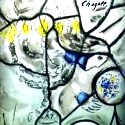
09.02.16 (Av 29, 5776) We are all on a spiritual journey, writing the "Book of our Life." To help us in the "writing" process, we can ask ourselves some pointed questions, such as: "How did I get to this place in my life?" "Where am I now?" "Am I where I should be?" We engage in this process of self-examination (חֶשְׁבּוֹן הַנֶּפֶשׁ) with an aim to grow -- to let go of the pain of the past and move forward. We forgive by surrendering our pain to God's care and by "giving away" the hurt. Confession (ὁμολογία) means coming before the Divine Light to agree with the truth about who you are. We reach out to God in trust, relying upon his kindness and mercy. When King David said, Adonai ohri v'yishi, mimi ira? - "The LORD is my Light and my salvation; whom shall I fear?" (Psalm 27:1), he implied that he should even be free of fear of himself and of his past...
Blessed to Give...

09.02.16 (Av 29, 5776) From our Torah portion for this week (i.e., parashat Re'eh) we read: aser te'aser: "You shall tithe..." (Deut. 14:22). Understand this as the great blessing of becoming a conduit of heavenly good to others. The sages say that giving tzedakah (צְדָקָה, i.e., "charity") to others is like a nursing mother. As long as she suckles her child, her milk supply is replenished and even increases; but once she weans the child, her supply dries up... So also when we give of our substance – the more we give, the more we will have; the less we give, the less we will have (Matt. 13:12). Therefore as our Lord taught us: "Give, and it will be given to you. Good measure, pressed down, shaken together, running over, will be put into your lap. 'Middah keneged middah' (מִדָּה כְּנֶגֶד מִדָּה) - for with the measure you use it will be measured back to you" (Luke 6:38).
Reverence and Freedom...

09.02.16 (Av 29, 5776) A widely accepted maxim of the Talmud is: "All is in the hands of God except the fear of heaven (yirat shamayim)" (Berachot 33b; Niddah 16b). In other words, though God constantly showers the world with grace and light, He does not "force" us to revere His Presence but rather leaves that choice with us. Of course God could overwhelm us all so that we had no choice but to see and fear Him, but He "withdraws" Himself and restrains His influence in our lives so that we can exercise faith. As Blaise Pascal said, "there is enough light for those who want to believe, and enough shadows to blind those who don't." The Hebrew word for seeing (ראה) and the word for fearing (ירא) share the same root. We cannot genuinely "choose life" apart from personally seeing it, but we cannot see it apart from the reverence of God. The reverence of God sanctifies our perception and enables us to see clearly. Therefore the righteous "walk by faith, not by sight" (2 Cor. 5:7).
Hidden in Plain Sight...

09.01.16 (Av 28, 5776) Where it is written in the Torah, "Surely the LORD is in this place, and I didn't know it" (יֵשׁ יְהוָה בַּמָּקוֹם הַזֶּה וְאָנכִי לא יָדָעְתִּי), we learn to look to the place of the heart, for the kingdom of heaven is found there, whereas the places of this world are merely occasions that may lead us to that greater place.... The Voice of Holiness says: "Take off your shoes, for the place you are standing is holy ground," which refers to every place, for the whole world is indeed filled with God's glory (Psalm 139:7; Isa. 6:3; Luke 17:21).
Truth of the Inward Parts...

09.01.16 (Av 28, 5776) "As a man thinks in his heart, so is he." We often see what we want to see more than what is really there. That's called wishful thinking. We overlook much, and we often ignore what might challenge our own preferred interpretations. For example, we may think that we are trusting God for our lives, but we worry, we attempt to control others, we get angry, and so on. We have a blind spot regarding the question whether we really trust God, perhaps because seriously investigating what we really believe seems too threatening (John 16:31-32). After all, what if we don't really believe? What if we struggle to believe? What if we are confused? What does that say about who we are? So we ignore the real problem (namely, lack of trust in God) and continue to think we are something we are not. We fool ourselves and trade a sense of "satisfaction" at the expense of truth. This is a common failing of human nature. During the Nazi years, many ordinary Germans refused to investigate reports of atrocities at the death camps because it was too costly to discover the truth (the same might be said about any patriotic citizens who rationalize the actions of their government regardless of the moral issues involved). By willfully hiding from the facts, we pretend we are not responsible, and therefore we justify passivity in the face of injustice and evil.
Yeshua warned that the time would come when those who kill others will delude themselves into thinking they are doing God a big favor (John 16:2). Think of how massively self-deceived such a thing is as that -- to murder someone as a service to God! Many of the biggest enemies of the truth are often those who think they are doing God such favors.
הֵן־אֱמֶת חָפַצְתָּ בַטֻּחוֹת
וּבְסָתֻם חָכְמָה תוֹדִיעֵנִי
hen · e·met · cha·fatz·ta · va·tu·chot
uv·sa·tum · chokh·mah · to·di·ei·ni

"Behold, you delight in truth in the inward parts
and you will teach me wisdom in the secret heart"
(Psalm 51:6)

This "truth of the inward parts" must come at the expense of heartache, for surely the heart must ache, tremble, and despair before it comes to accept the truth about its condition. This sort of truth is "existential," meaning that it is known only through the process of living life itself. As Kierkegaard said, "There are many people who reach their conclusions about life like schoolboys: they cheat their master by copying the answer out of a book without having worked the sum out for themselves." Yes, and they cheat themselves, too, since they somehow believe that "knowing the answer" given by another is the same thing as "knowing the answer" of their own inward being. Kierkegaard continues this thought: "The truth must be lived before it is understood; it must be fought for, tested, and appropriated. Truth is the way... You must be tried, do battle, and suffer if you are to acquire truth for yourself. It is a sheer illusion to think that in relation to truth there is an abridgment, a short cut that dispenses with the necessity of struggling for it."
Note that the "inward parts" (טֻחוֹת) refers to the "kidneys" which were thought to be "the reins" or the concealed (i.e., te'ach: טִיחַ) source of the will within the person. Interestingly, the word for "inward parts" comes from the verb tachah (טָחָה) that means to "shoot with a bow," alluding to the idea of inner Torah as a directive power. God wants purity of the heart – passion, singleheartedness, and earnestness – as we live and practice the truth. God wants "the inner parts," the concealed parts of the soul, to be filled with his Torah, and therefore David asks God to make him to know wisdom there - in the "secret heart" - so that he might apprehend God's truth and do teshuvah that purifies the heart.
"Compared with the person who is conscious of his despair, the despairing individual who is ignorant of his despair is simply a negativity further away from the truth and deliverance... Yet ignorance is so far from breaking the despair or changing despair to nondespairing that it can in fact be the most dangerous form of despair. An individual is furthest from being conscious of himself as spirit when he is ignorant of being in despair. But precisely this - not to be conscious of oneself as spirit - is despair, which is spiritlessness." - Kierkegaard (The Sickness Unto Death)
The Work of Faith...
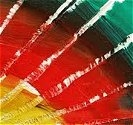
09.01.16 (Av 28, 5776) You are invited to come before the Divine Presence - you are welcomed with joy - because of the glory of God's love given to you in Yeshua... And while you can never "earn" God's love, of course, you must take hold of it by faith, as Yeshua said: "This is the work of God - that you believe in the One whom God sent (John 6:29). This is the great work of the heart: learning to believe that Yeshua was given for your sake, because you are redeemable and have infinite value in the eyes of heaven. Faith finds courage to accept God's love, despite whatever tempts you to feel unworthy or unacceptable. It pushes past the superficial view that you can please God by what you do, instead of enjoying God by knowing who He is: God is love; God is Light; He is Faithfulness, the Savior of your life... Faith works through his love (Gal. 5:6).
"To the Christian, love is the works of love. To say that love is a feeling or anything of the kind is an unchristian conception of love. That is the aesthetic definition and therefore fits the erotic and everything of that nature. But to the Christian love is the works of love. Christ's love was not an inner feeling, a full heart and what not, it was the work of love which was his life." - Kierkegaard (Works of Love)
Shalom and love to you all, to each one of you... I thank the LORD God for you and esteem you as part of my spiritual family. May you be strong in the LORD and the power of his might; may you be happy and blessed and know God's great peace; may you be filled to overflowing with God's healing love and grace and kindness and beauty and wonder... This is my prayer for this coming Jewish new year. That we will all wake up to behold the love of God in the face of Yeshua our LORD... May he come speedily, and in our days. The King is coming! The great shofar will soon sound!
|






